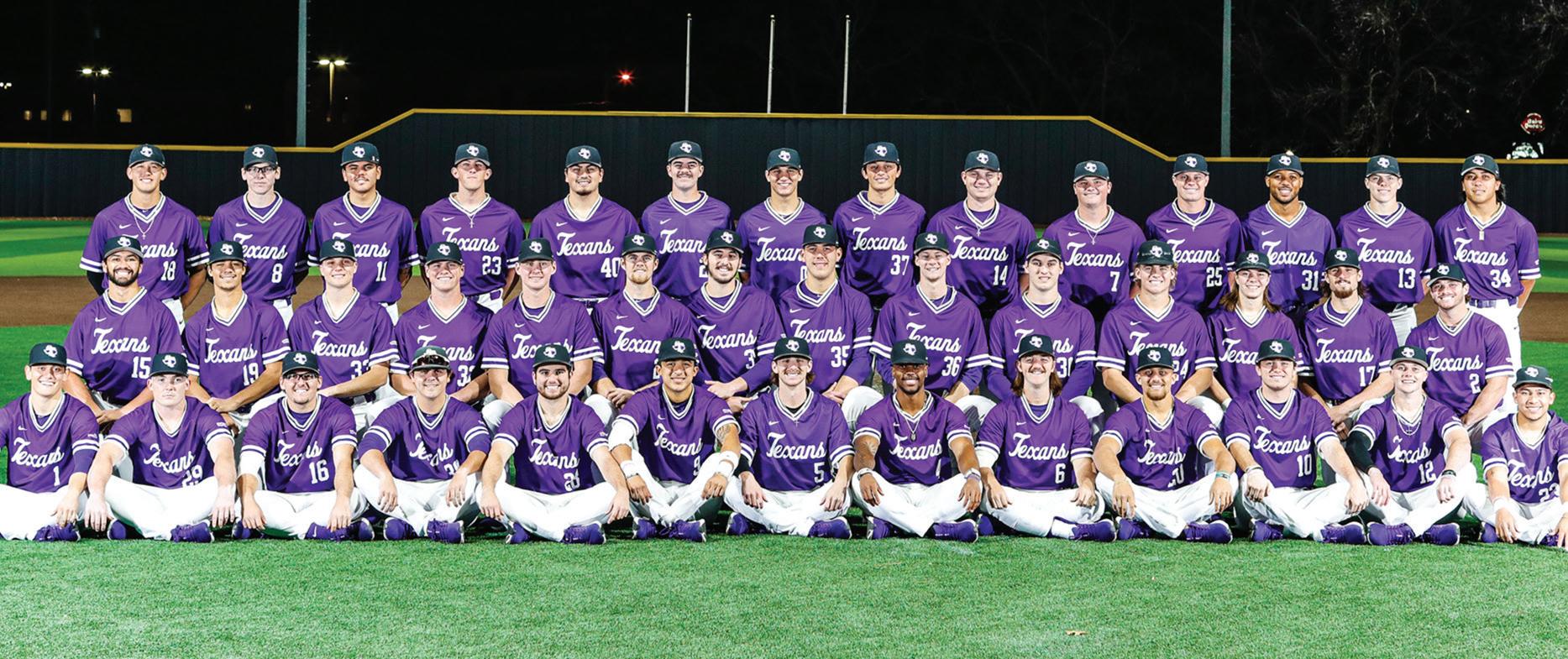tarleton state




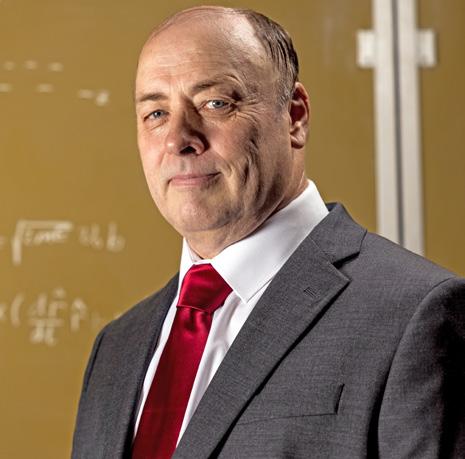

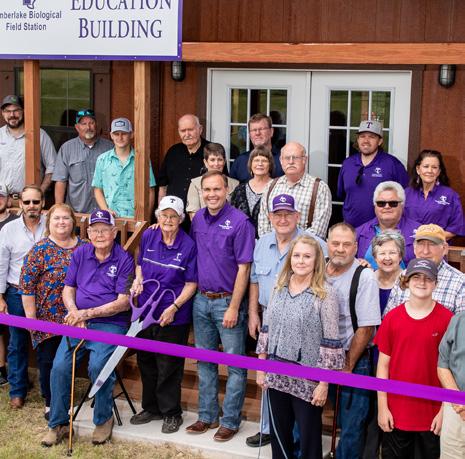
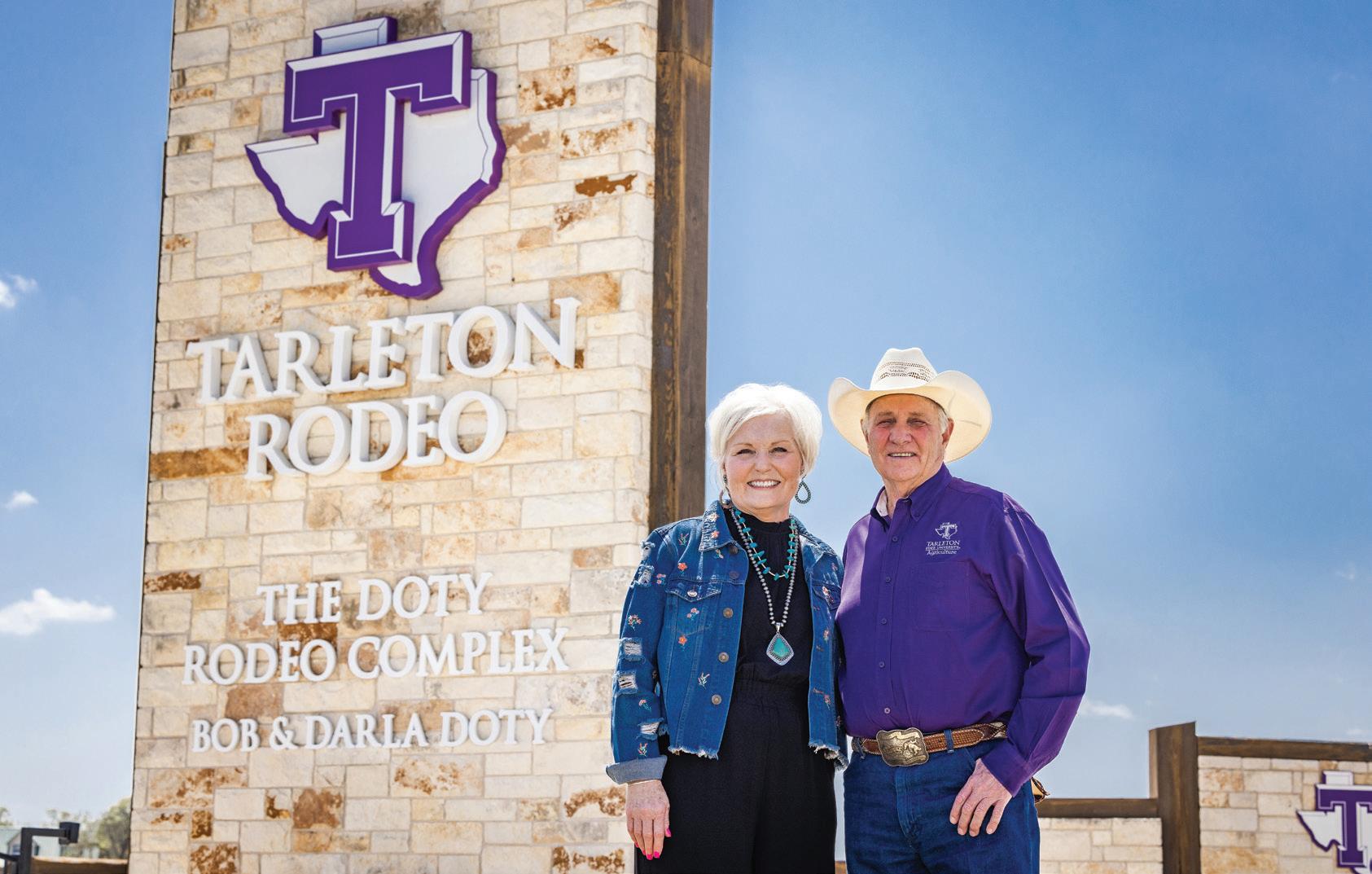



Elevated research. Enhanced academic prowess. CNFR championship. Record fund-raising momentum. Robust enrollment. New construction. Let’s celebrate!
The designation of Doctoral Universities: High Research Activity from the Carnegie Classification of Institutions of Higher Education puts Tarleton among 132 universities nationwide assessed as R2.
This fall we will introduce six market-responsive and innovative majors, supporting our 123-year commitment to academic advancement and connecting students to growing professional fields throughout North Central Texas and beyond.
For the fourth time in Tarleton history, the men’s rodeo team seized the crown at this summer’s College National Finals Rodeo in Casper, Wyo. I wouldn’t have missed it for the world.
Connoisseurs of the rodeo arts packed the Ford Wyoming Center and brought the house down when Walt Arnold won the steer wrestling championship — his third CNFR qualification. The look on Walt’s face said it all: Mission accomplished.
Cash Wilson, Brody Wells, Ty Allred and Brayden Roe all posted top-10 scores and times in their events, accumulating 900 points for the Tarleton team to pass reserve champion McNeese State for the championship.
Champions in a different arena — philanthropy — heard impressive news at Tarleton’s annual gala, An Evening in Purple. We beat the $100 million goal in our largestever comprehensive capital campaign two years ahead of schedule and set a new target — $125 million — to commemorate our 125th anniversary in September 2024.
This campaign reflects a significant facet of the energy we enjoy at Tarleton. That energy has attracted a fall incoming class that will be the largest, most diverse and most academically prepared in Tarleton history. Enrollment is expected to exceed 16,000, with admissions for first-time-incollege and graduate students at an all-time high.
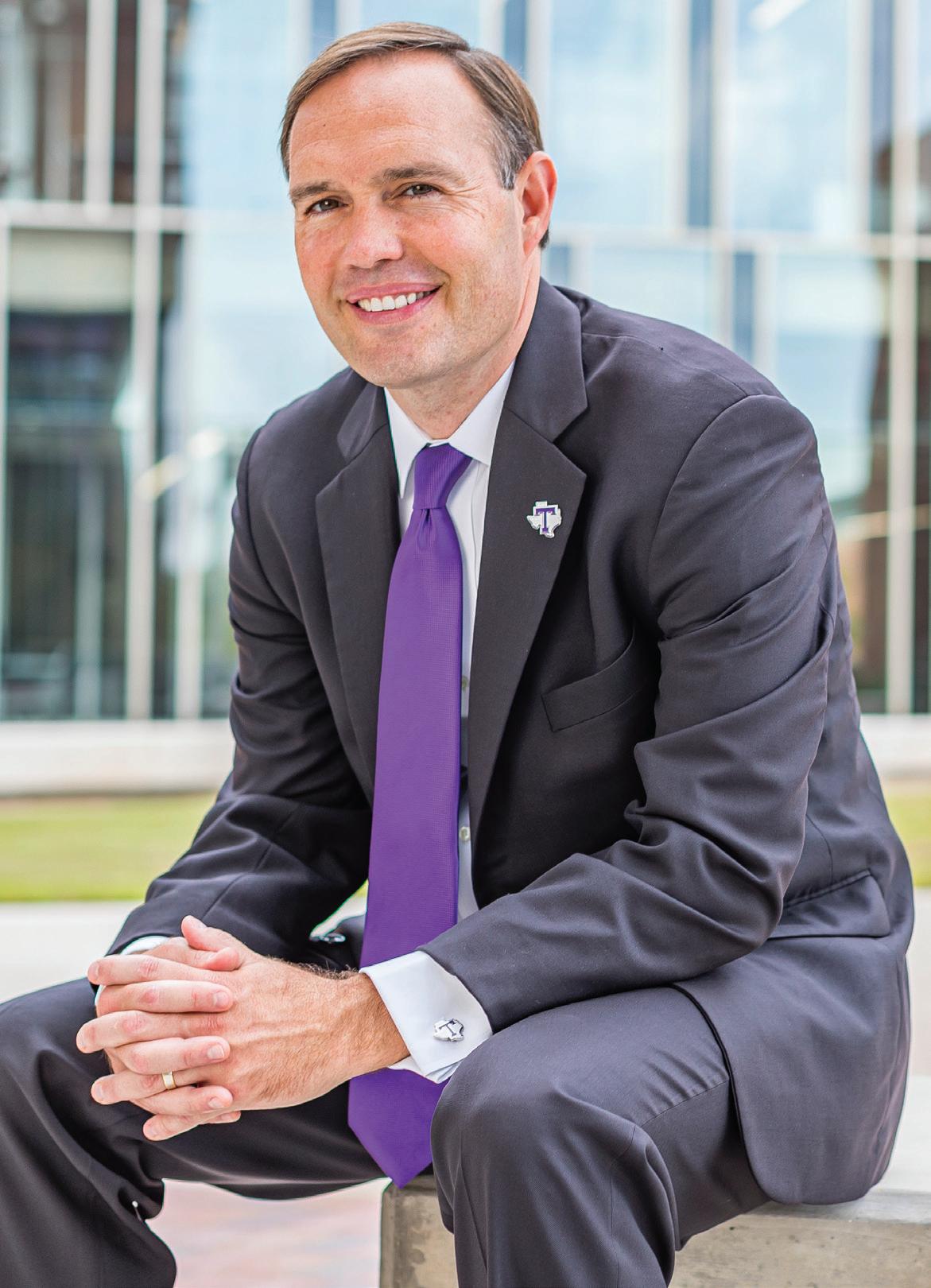
The capital campaign offers us the opportunity to do more — to provide students with more scholarships and faculty with more resources — to dream a little bigger, and in the best facilities.
Dirt is moving for our Interprofessional Education Building in Fort Worth. With move-in set for 2024, the $66 million IPE will address the region’s two most pressing needs — increased access to quality healthcare and education.
Tarleton track and field is getting a permanent home ahead of the 2022-23 season, ensuring the university’s eligibility to set world records and host professional and international events.
A new Child Development Center will open in the renovated Moody Hall, and Tarleton’s Center for Child Well-being will relocate there. The Joe W. Autry Building (College of Agriculture and Natural Resources) will sport a fresh look, including an updated foyer and renovation of the Dr. Jesse L. Tackett Auditorium.
The Texas A&M University System Board of Regents approved a $110 million Convocation and Event Center in the heart of Tarleton’s main campus. Seating up to 7,500, the multipurpose center will sport NCAA Division I basketball facilities and room for academic symposiums, conferences, graduation ceremonies, conventions and concerts.
Over the summer, some universities slow down. We don’t. We just power on.
Forever Bleed Purple!
Efforts to advance research and other scholarly endeavors have earned Tarleton the elevated status of Doctoral Universities: High Research Activity from the Carnegie Classification of Institutions of Higher Education.
Also known as Carnegie R2, the standing puts Tarleton among 132 universities across the country designated as high research and only one of a handful to move up from Master’s Colleges and Universities-Larger Programs (M1).
Criteria for R2 designation consider the number of research/scholarship doctorates awarded annually and a threshold of $5 million in discovery expenditures. Tarleton has graduated more than 130 doctoral students and spent some $60 million in faculty-led research over the past five years. The university’s doctor of philosophy in criminal justice started in fall 2019, and a PhD in counseling is planned for fall 2023, pending approval by the Texas Higher Education Coordinating Board.
The sale of Hunewell Ranch due east of Stephenville now funds a $5.4 million endowment for band scholarships, instruments and uniforms. Approved by The Texas A&M System Board of Regents in November, the sale was finalized in January.
Dennis G. Hunewell, Director of Tarleton’s esteemed Military Band for more than two decades (1920-42), purchased the ranch after his retirement and lived on it until his death in 1959. He gifted the property to the university in his will, stipulating that proceeds from its sale benefit band students.
Tarleton kept the portion of Hunewell Ranch that is home to its observatory. Third largest in the state, the observatory houses one of the few fully robotic telescopes in the world.
Following a rigorous national search, Dr. Diane Stearns became Tarleton’s next Provost and Executive Vice President for Academic Affairs on June 1.

She replaces Dr. Karen R. Murray, who’s stepping back after more than three decades of service.
Dr. Stearns served as Provost and Vice President for Academic Affairs at Northern Arizona University in Flagstaff from 2019 to 2021 and was a Professor in NAU’s Honors College.
As Tarleton’s chief academic officer, she plays an essential role in advancing excellence in teaching, research, undergraduate and graduate education, and in recruiting and retaining faculty. She is a graduate of Carleton College in Northfield, Minn., where she majored in chemistry. She holds a PhD in inorganic chemistry from the University of California, Berkeley.
The Texas A&M University System Board of Regents in May approved a $110 million capital project request to construct a Convocation and Event Center on Tarleton State University’s main campus.
“This is a tremendous milestone in Tarleton history,” said university President James Hurley. “We are incredibly grateful for the unwavering support of A&M System regents and Chancellor John Sharp. Their vote proves they’re all in for a state-of-the-art venue to propel our institution and promote our community.”
Seating up to 7,500, the multipurpose center will sport NCAA Division I basketball facilities and room for academic symposiums, conferences, conventions and concerts. Tarleton convocations, commencements and student activities will have a permanent indoor home, and Stephenville will enjoy increased revenue from community and regional events.
Naming Tarleton’s new rodeo facility to honor the legacy of Bob and Darla Doty became a reality in April, just months after the couple announced a $1 million contribution to support the university’s nationally acclaimed program.

“It’s only right that this facility bears the names of Bob and Darla Doty,” said President James Hurley. “Tarleton and rodeo are synonymous, largely because of their leadership and amazing generosity.”
Bob and Darla joined Tarleton in 1994 — Bob as rodeo coach and Darla as a coordinator in Career Services — with common goals to inspire students, encourage volunteers and promote philanthropy while turning an already vaunted rodeo program into a perennial powerhouse.
Both are retired — Bob from coaching in 2008 and teaching in 2020, and Darla in 2015 as interim Vice President for Student Affairs. Both were inducted into the Tarleton Rodeo Hall of Fame in 2014, and Bob into the Cowboy Capital Walk of Fame in 2000.
Alumnus Robert Anderson was elected to the Texas Rodeo Hall of Fame as the winner of the 2022 Western Heritage Award.
Anderson, from Aledo, is a 1970 Tarleton agricultural education graduate. He formed the North Texas High School Rodeo Association and served as the organization’s first president.

Other rodeo-related achievements include serving as state director of the Texas High School Rodeo Association, directing Wendy Ryon Memorial Team Roping, being the first sponsor of the women’s team roping at the Will Rogers Memorial Rodeo, organizing and hosting the “Cowboy Gathering” in 2010 and 2013, and serving as a director for the Texas Rodeo Cowboy Hall of Fame.
The 2017 Tarleton Rodeo Hall of Fame inductee also founded Tarleton’s Rodeo Alumni Chapter and served as its first president. He was a Tarleton Alumni Association director and donated to the rodeo team’s new facility.
The induction ceremony was in April in the Fort Worth Stockyards National Historic District.
In 2011 Tarleton’s Southwest Regional Dairy Center welcomed elected officials and higher-ups in The Texas A&M University System and dairy industry dignitaries to its gala grand opening.
“The Dairy Center has been a dream for more than a decade,” said then-state Rep. Sid Miller. “Our goal was for this to be the showcase dairy, in not just the southwestern U.S. but for the entire nation.”
Those dreams have been realized.
The facility marked 10 years last fall in support of teaching, research and outreach programs to address the needs of higher education and the dairy industry in Texas and the Southwest.

The A&M System-wide SWRDC utilizes the distinctive external alliance of a private partner — 360 Ag Management, which owns and manages the facility’s 400 head of Holstein, Jersey and crossbred cows — and researchers from Tarleton, Texas A&M and Texas A&M AgriLife.
Dr. Barry Lambert has been named Dean of the College of Agriculture and Natural Resources. He served in an interim capacity from fall 2021 to January 2022.
Previously Associate Dean of the college and Associate Vice President for Research, Dr. Lambert joined the Tarleton faculty in 2003, advancing to Director of the Southwest Regional Dairy Center and Dean of the College of Graduate Studies. He also led the Department of Animal Science and the Department of Environmental and Agricultural Management.
He has secured almost $20 million in research funding, published more than 60 refereed journal articles and presented at conferences worldwide. As a Faculty Fellow in the University Center for Instructional Innovation, he has received teaching and research awards.
Dr. Lambert earned his bachelor’s degree in animal science and master’s degree in biology from Tarleton and his PhD in animal science from Kansas State University.

Tarleton has been awarded an additional $1.5 million grant from the Texas Higher Education Coordinating Board to assist students returning to school to continue their education or complete their degree.
The Texas Reskilling Support Fund Grant Program stems from $175 million given the coordinating board from the Governor’s Emergency Educational Relief Fund, which originally was part of the Coronavirus Aid, Relief and Economic Security (CARES) Act of 2020. Grant money will be available through Sept. 30, 2022, for those who qualify, to cover tuition and fees.
Tarleton’s College of Business has earned AACSB International accreditation, a distinction enjoyed by fewer than 5 percent of business schools worldwide.
Founded in 1916, the Association to Advance Collegiate Schools of Business is the longest-serving global accrediting body for business colleges, connecting educators, students and entrepreneurs to create the next generation of leaders.
“After years of collective endeavors among students, faculty, staff and administrators, Tarleton has distinguished itself as home to one of the world’s best business schools. Earning AACSB accreditation is a tremendous honor,” said Dr. Chris Shao, Dean of the College of Business. “While cherishing this monumental accomplishment, we’re eager to embrace the challenges ahead.”
AACSB-accredited schools undergo a rigorous peer review to ensure their ability to provide a future-focused business education. During the multiyear process, schools develop and implement a plan that meets accreditation requirements.

“I commend Dr. Shao and his team for their diligence in making this elite standing a reality,” Tarleton President James Hurley said. “This prestigious accreditation proclaims an exceptional business education on the global stage. A profound honor, we will strive to deserve it every single day.”

Referring to the life-changing benefits of AACSB accreditation, university Provost Dr. Diane Stearns said it will ensure that graduates earn higher, more competitive salaries.
Anthony “Tony” Vidmar began his duties this summer as Vice President for Institutional Advancement after more than 35 years of extensive accomplishments with large research, land-grant universities, public and private liberal arts colleges, three Power 5 Conference universities (Ohio State, Virginia Tech, Purdue), alumni associations and complex, multinational, faith-based organizations. He has helped forge and secure more than 38 gift collaborations, closing with six-, seven- and eight-figure commitments.
He most recently served as Vice President for University Advancement and Public Affairs at Midwestern State University (Texas Tech University System) overseeing everything from major gifts to donor relations to athletics resource management. He directed the university’s nationally recognized comprehensive capital campaign, Boundless Opportunities, which exceeded its seven-year goal in only 29 months and now has surpassed the original target by more than 150 percent.
A first-generation college graduate and nontraditional learner — he was pursuing graduate school in his 40s while working full time — Vidmar holds a bachelor’s degree in forest biology with highest honors from The Ohio State University and an MBA from Northwest Nazarene University.
A $247,134 grant from the Sid W. Richardson Foundation is helping Tarleton continue to scale up its successful teacher residency program to a full year from a single semester, benefiting future educators, their mentors and partner school districts.
Elementary education majors previously completed one semester of student teaching as part of their degree requirements. Student cohorts now complete a year of co-teaching with a professional mentor teacher, and the grant provides salary for a site coordinator to supervise Tarleton’s clinical teaching residents, further enhancing their professional development.
The grant also brings $500 stipends for clinical teachers and $400 for mentor educators who work directly with them. Tarleton’s yearlong residency model for elementary school teachers began in April 2020 following grant support ($300,000 over three years) from University School Partnerships for the Renewal of Educator Preparation.
U.S. Army Col. Doug Simon has been selected Commandant of Tarleton State University’s Corps of Cadets and Dean of its Leadership and Military College.

A member of the Minnesota National Guard since 1989, Col. Simon recently served as the State Staff Judge Advocate for Minnesota, advising the Adjutant General and senior leaders on military law. He also is Senior Judge Advocate and Branch Manager for the Minnesota National Guard Judge Advocate Corps.
His higher education career spans more than 20 years as a faculty member at Southwest Minnesota State University, where he chaired the Department of Business and served on accreditation, strategic planning and institutional assessment committees. His diverse academic background includes teaching graduate and undergraduate courses in public and private law, leadership and public policy.
Col. Simon holds a PhD in sociology from South Dakota State University; a juris doctor from the University of South Dakota; a Master of Laws in Military Law from the Judge Advocate General’s Legal Center and School in Charlottesville, Va.; a master’s of public administration from the University of South Dakota; and a bachelor’s in political science and history from Southwest State University in Marshall, Minn.
He served as the Operational Law Attorney for Operation Joint Force (Bosnia-Herzegovina) and Brigade Judge Advocate for the 34th Combat Aviation Brigade for Operation Iraqi Freedom, earning a Bronze Star for his service in a combat zone.
Innovation, University Certification Officer, Associate Graduate Dean and, most recently, Dean of the College of Graduate Studies. At COGS she oversaw recruiting and digital marketing that helped increase graduate enrollment more than 45 percent since 2015.
She led the recent strategic planning process that charted a 10-year course to enhance Tarleton’s student experience, foster innovation, strengthen the economy and grow the institution’s national prominence. She now cochairs the Integrated Planning Council to ensure implementation of Tarleton Forward 2030: Our Future-Focused Strategic Plan
A full professor in the College of Education and Human Development, Dr. Baker has authored research publications and helped secure $4.9 million in grants and sponsored projects. She advises the student chapter of The National Society of Leadership and Success and has served on the Academic Integrity Taskforce, Intern2Learn Taskforce, University Planning Council, Strategic Enrollment Council and P-20 Taskforce on Virtual Instruction.
She completed her PhD in applied technology and performance improvement at the University of North Texas, and a master’s in curriculum and instruction and a bachelor’s in administrative systems at Tarleton.
Dr. Credence Baker has been named Vice President for University Relations and Chief of Staff to President James Hurley.
A Tarleton alumna, she has filled key leadership roles in her 16-year career at the university, including Director of the Center for Instructional
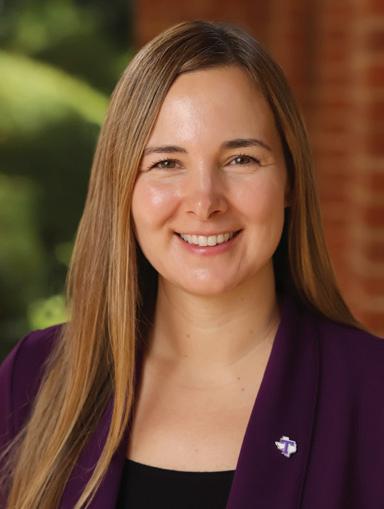
Tami Condon in May was selected Director of Alumni Engagement, part of the Office of Institutional Advancement. She previously served as Associate Director of Development for Tarleton’s College of Health Sciences and Human Services and College of Education and Human Development.
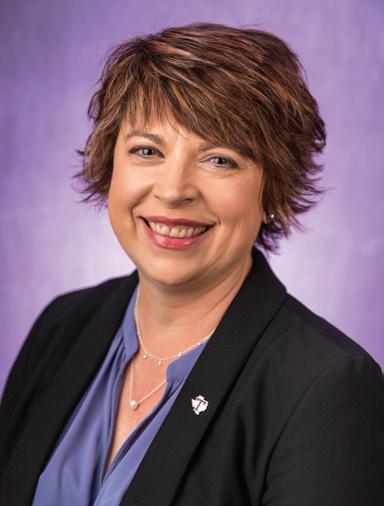
As Director of Alumni Engagement, she will provide vision for the Tarleton Alumni Association and its board of directors and committees. She will develop and maintain a comprehensive program of opportunities to involve alumni and friends and increase philanthropic participation.
Created by the Class of 1912, the alumni association provides financial and volunteer support for the university and boasts more than 85,000 former students around the
globe. One hundred percent of membership dues goes to scholarships.
Prior to joining Tarleton in 2021, Condon served Your Best Pathway to Health as Vice President for Advancement, identifying and cultivating connections with regional and national donors and sponsors. As VP of Advancement at Southwestern Adventist University, 2016-2019, she delivered a major capital campaign for a nursing and administration building that raised 40 percent of the $16 million target in two years.
In her 11 years as Director of Alumni Services at Andrews University in Michigan, she revitalized relationships with more than 100,000 alumni across 155 countries and organized some 100 annual events, including a Homecoming with attendance exceeding 3,000.
“Tarleton alumni are the lifeblood of this institution, and I am honored and thrilled to serve as both their advocate and champion,” she said. “I look forward to listening to what is important to our alums and working together to build upon the strong foundation that has already been set for the Tarleton Alumni Association.”
The work of a Tarleton research team led by Dr. Rajani Srinivasan, Endowed Munson Research Professor of Chemistry, is gaining international recognition as a nontoxic way to remove microplastics from wastewater.

The team has demonstrated that combinations of food-grade plant extracts — including those from okra, aloe, cactus and psyllium — work better than, or as well as, the potentially harmful chemicals currently used and can be implemented in existing water treatment processes.
Dr. Srinivasan and her students will continue tailoring ratios and combinations to optimize removal of different microplastic types from a variety of water sources. Ultimately, they hope to commercialize the method and remove microplastics from water on an industrial scale.
The project is supported through funding from the National Science Foundation and the High Plans Water Development District in Lubbock, Texas.
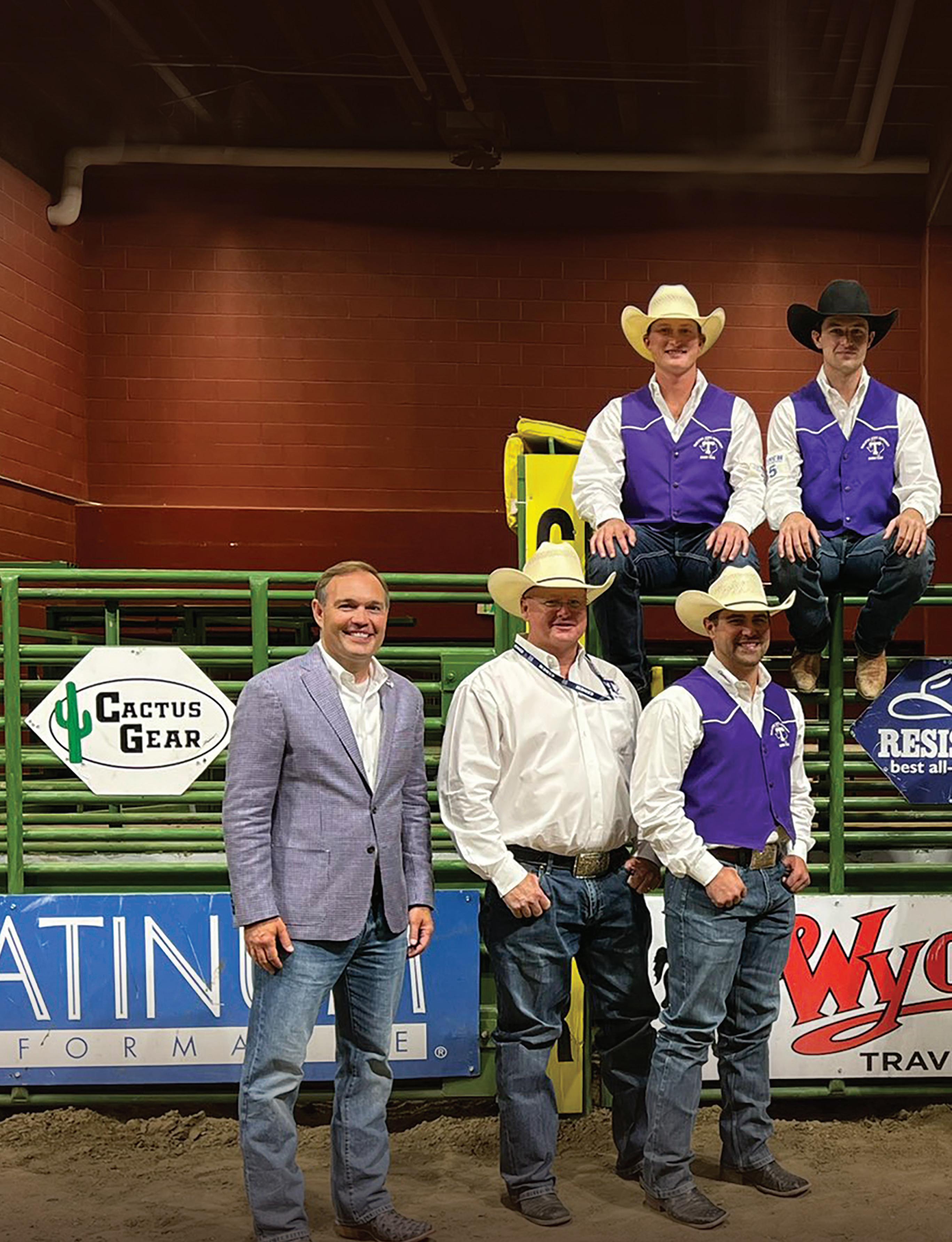
Tarleton President James Hurley, far left, congratulates the men’s rodeo team on its fourth national championship at the College National Finals Rodeo on June 18 in Casper, Wyo. Bottom row from left: head coach Mark Eakin, team roper Brett Stuart, steer wrestler Walt Arnold and coach Casey Sisk. Top row from left: tie-down roper Brayden Roe, saddle bronc riders Brody Wells and Cash Wilson, and steer wrestler Ty Allred. Photo courtesy of the Casper Star-Tribune.

ogi Berra said it best: “It was like déjà vu all over again.”
For the fourth time in the storied history of Tarleton rodeo, the men are national champions.

Tarleton added its most recent team title this summer at the College National Finals Rodeo in Casper, Wyo.
“It was an exciting week,” said rodeo coach Mark Eakin. “We usually say it’s a roller coaster because there are so many ups and downs, but this one it seemed like the whole week kept building and building.”
Steer wrestler Walt Arnold led the Tarleton charge, capturing an individual national title of his own. Leading the event going into Saturday’s championship round, Arnold flashed a 3.7 time for top honors in the short-go and in the average.
“I haven’t had time to think much about it,” he said. “It was kind of overwhelming as soon as it happened.”
Many former Tarleton rodeo team members have congratulated Arnold for his and the team’s achievement.
“There have been so many calls and texts, I haven’t even been able to get back to everybody,” he said.
He’s still processing his own title and the fact he has joined a formidable list of competitors from Tarleton.
“Man, it feels pretty good. The individual national championship was special, but I’m honestly prouder of the team national championship we won. All those guys showed up and performed. Nobody could have done that by themselves. We hit the gas and brought it home.”
Arnold said everyone on the team was driven to succeed.
“All the coachers — Mark, Casey (Sisk), Brittany (Stewart) — they were super instrumental in helping us out, making sure we were in the right place at the right time with the right mindset. They were just as important as anyone competing.
“Tarleton and President Hurley went above and beyond, getting us out here, supporting us and giving us the tools we needed to do well.”
The championship finals in Casper featured the top 12 finishers in each event from the week’s competition. Five Tarleton cowboys made the finals, and all posted top-10 scores and times.
Saddle bronc rider Cash Wilson won the short-go with his CNFR personal best of 82. He finished as reserve champion in the average with a four-head total of 308.5.
Steer wrestler Ty Allred took fourth in the finals, saddle bronc rider Brody Wells was fifth, and tie-down roper Brayden Roe was 10th.
The team title was the second for Tarleton’s men under Eakin’s guidance, and the first since 2015. He sees similarities in the two squads, but he has no interest in comparing them.
“Every year is different. Both teams were well-rounded with strong competitors in multiple events. We covered both ends of the arena, and it took everybody.”
Overall, Tarleton accumulated 900 points in Casper, topping reserve champion McNeese State by 120 points.
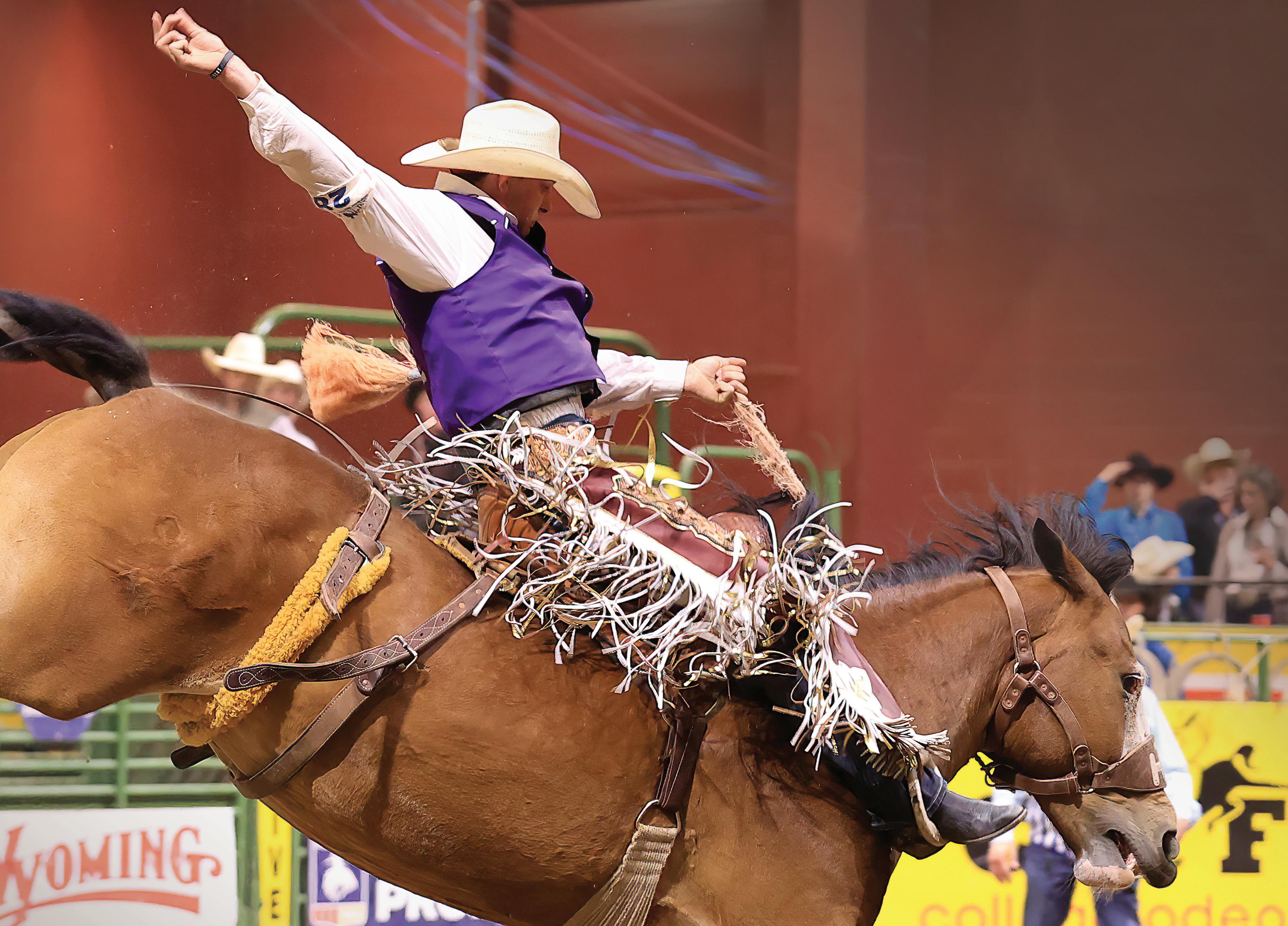
“This team was on a mission,” Eakin said. “We drew well, they did everything they could do, and they supported each other. They knew from day one we had a shot.”
Winning the CNFR championship didn’t herald nap time. In rodeo there are no spa days.
“We won on that Saturday, took pictures and headed out,” Eakin said with a laugh. “I was welding Monday morning. It’ll be fun once we get everybody back together in the fall and celebrate a little.”
Arnold, Wells, Wilson and Allred competed in Reno just two days after winning in Wyoming.
“I probably won’t be home until September,” Arnold said.
Tarleton’s rodeo teams now have combined for eight national team titles in program history and 29 individual championships.
More big wins are ahead.
Nothing says progress like hard hats.
That headgear has been part of the landscape for a while as several major campus projects are concluding and others are just getting off the ground.
The university’s Fort Worth campus celebrated the groundbreaking of a linchpin building, the long-awaited Aquatics Center is open, repurposing the hydrology building for athletics administration has been completed, and the first level of historic Moody Hall is being upgraded for the new Child Development Center.
David Martin, AVP for Campus Operations, is overseeing the changes, and he views them as a sign of health.
“There’s a lot going on around campus,” he said. “This further demonstrates the upward trajectory that Tarleton is on.”
The biggest current project is the $66 million, 100,000-squarefoot Interprofessional Education Building in Fort Worth.
The Texas A&M University System approved design plans in February, with move-in set for 2024. Construction dollars come from the Permanent University Fund and are part of a systemwide capital plan approved in 2019 by the Board of Regents.

“Consider this a watershed moment for Tarleton, Tarrant County and the entire A&M System,” said Chancellor John Sharp. “This state-of-the-art facility will absolutely recruit researchers who will tackle the medical and educational challenges of our time. This is how we make a difference.”
More room in Fort Worth means expanded offerings in occupational therapy, physical therapy, speech-language pathology, psychology, nursing, kinesiology, medical laboratory sciences and teacher education.
“The demand for healthcare practitioners and educators is surging, as is the interest in these professions among our students,” noted Tarleton President James Hurley. “Add in the investment of the A&M System and the Legislature, and we must step up to make our world a better place.”
The 87th Legislature appropriated $2 million in its regular session for Tarleton to develop occupational therapy, physical therapy and physician assistant programs. Another $90 million for Capital Construction Assistance Projects (passed in October) will help expand the Fort Worth campus and create a health sciences college, with its own building, in Stephenville.


“The design stage is complete,” Martin said, “and we’re ready to move into the construction phase.”
End users of the $12 million Aquatics Center got a peek in April before it opened to students and employees in June.
Part of Tarleton’s Department of Campus Recreation, it features eight 25-yard lanes and bleacher seating, an outdoor multifunctional pool for use by Tarleton students and the community, and a first aid office, locker and dressing rooms, family changing rooms, storage areas and wet training lab for kinesiology students.
A student commons area in the Interprofessional Education Building will provide space to relax between classes or gather with friends. A large central staircase creates an indoor amphitheater.
Tarleton’s existing pool, an addition to Wisdom Gym in 1970, has been the only public indoor facility in the area for swim lessons, water aerobics, lap swimming and lifeguard training.
Tarleton students voted in 2015 to increase fees to cover the Aquatics Center’s construction as well as enhancements for university tennis courts and intramural fields. The tennis court and field improvements are complete.
Tarleton athletics moved to NCAA Division I in 2020, and that jump in classification, as well as in new programs, created a need for more space for sports administration.
That’s where the hydrology building comes in.
Located off Washington Street in Stephenville near the College of Business, the building has been remodeled for a variety of uses by the Division of Intercollegiate Athletics.
The first floor has a large team meeting room and offices for administrators, coaches and athletic marketing. The second floor houses a Student Athlete Academic Center.
A diverse seating configuration upstairs allows studying alone or in groups, as well as a computer lab. The first phase of the project — the second-floor student-athlete area, part of the office space, corridors and common areas — was finished this summer. Plans for the rest of the project are being finalized.
Martin said repurposing older buildings brings additional construction challenges, including making them ADA accessible.
“We bring them up to current code standards when we renovate,” he said. “In addition to that, it’s just being sure we prepare elite academic and athletic facilities for our campus community.”
Moody Hall, built as a dormitory in 1936, will house Tarleton’s Child Development Center on the first floor as soon as renovations are complete.
The CDC was previously housed in Wisdom Gym, but it has not been operational for over a year.
Improvements to the west entrance of the Barry B. Thompson Student Center include new terrazzo floors, new lighting and ceilings. The Tarleton Center is also seeing changes. Renovations to the south side will increase capacity and make the building more efficient for operations supporting university admissions.

Construction at the new Bob and Darla Doty Rodeo Complex training facility is complete.
“Additional fencing was installed, and safety issues were addressed,” Martin said. “Calf roping and bull riding were never performed at the facility before; therefore, there was some adapting it to meet our needs. We built some small shelters for the livestock and installed bleacher seating for approximately 1,000 spectators.”

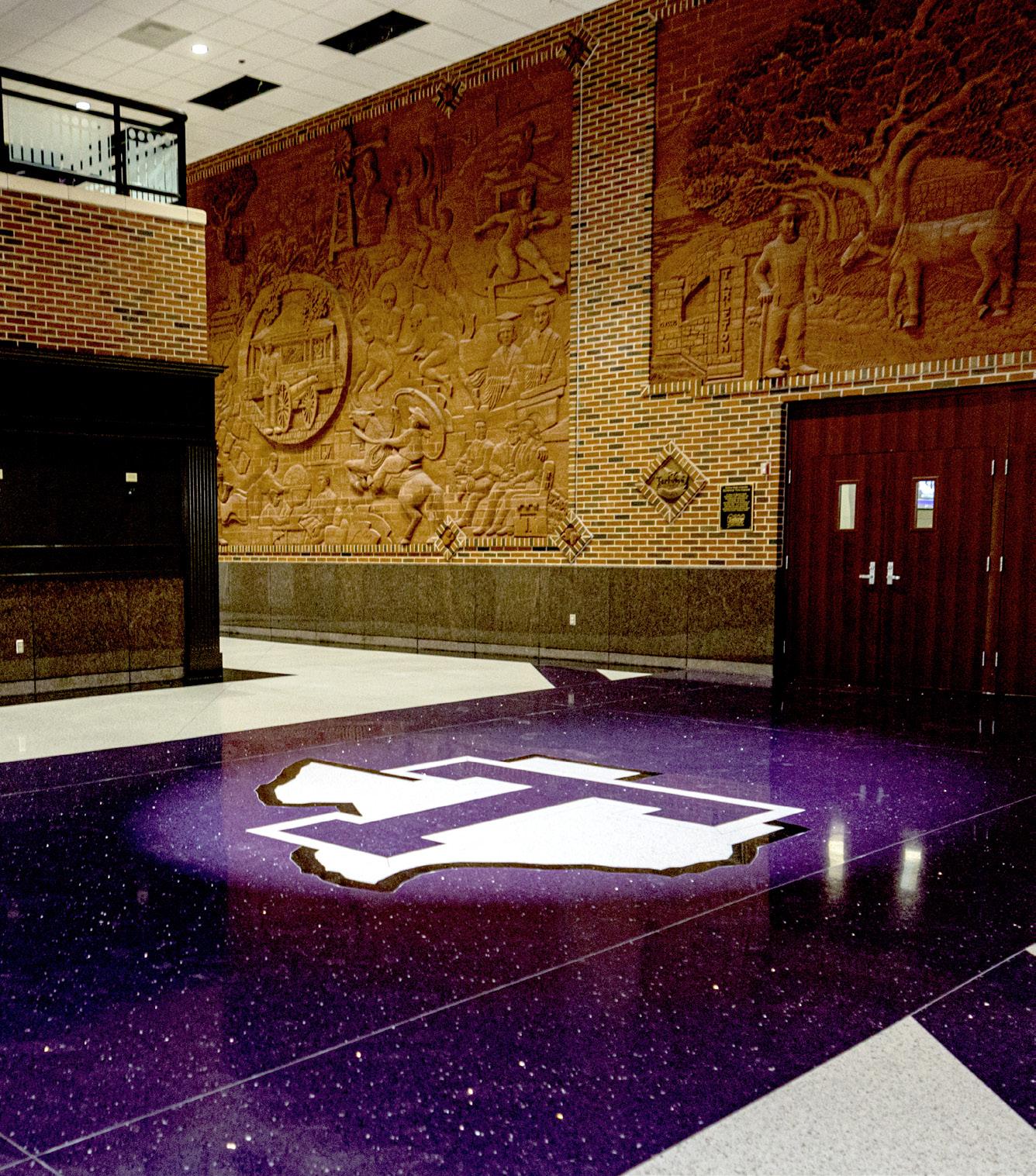
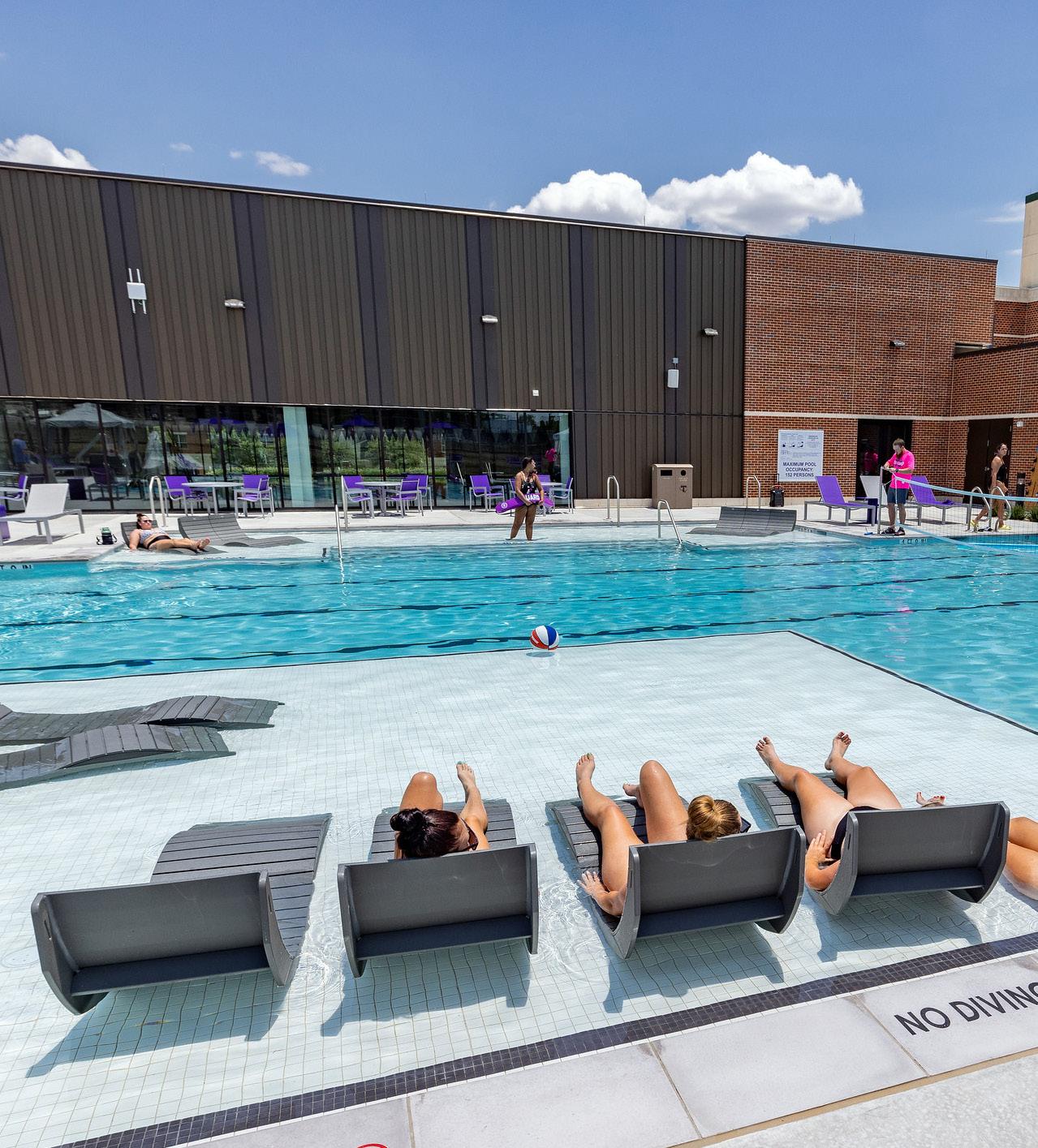
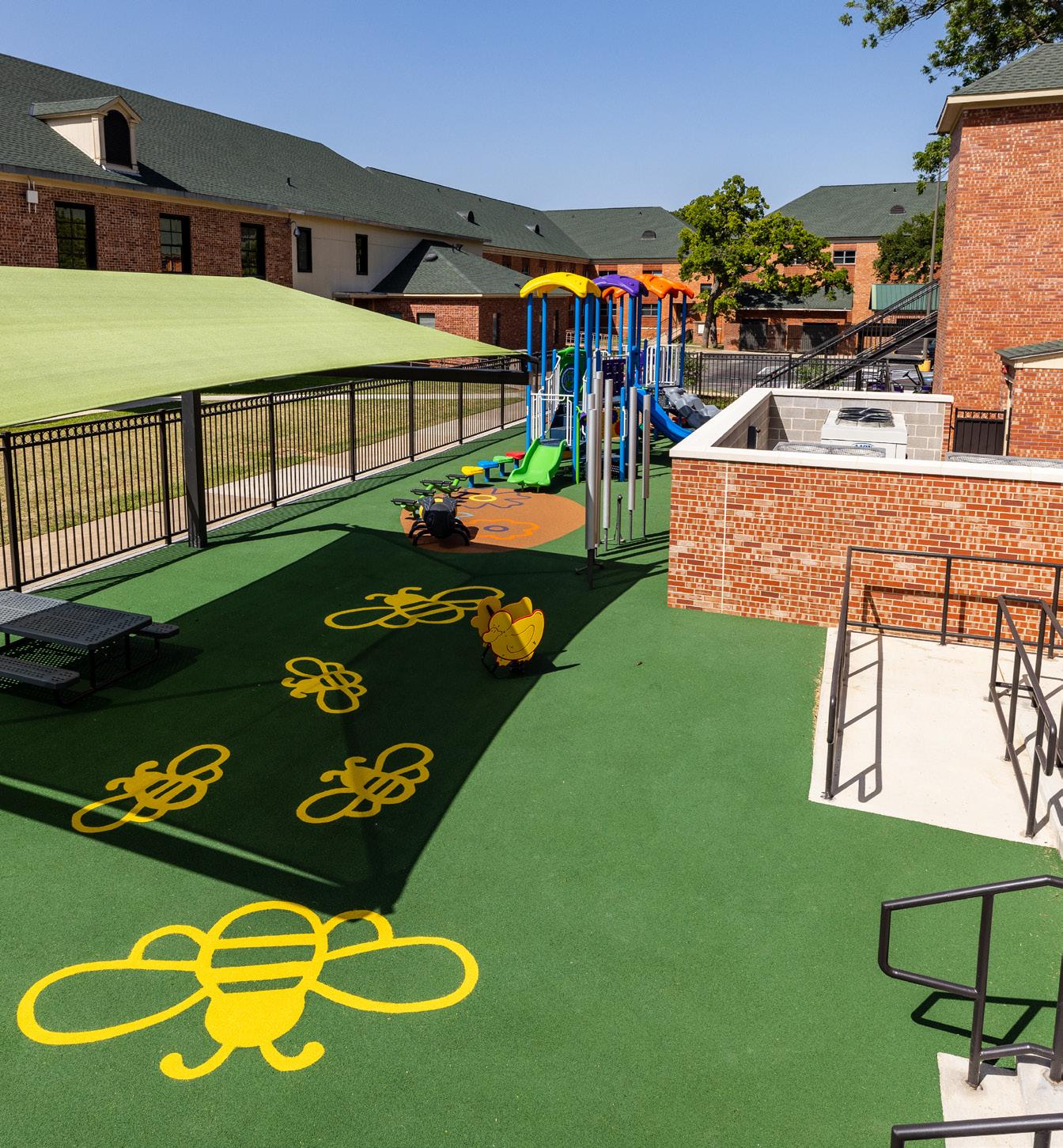


As Tarleton’s footprint in Division I athletics expands, so does the need for elite facilities.
The university will further upgrade Memorial Stadium this summer, after major work just four years ago. Add the off-season improvements to its baseball, softball, soccer and track facilities, and Tarleton can boast sports venues to make any program proud.

“We’re coming off a football season where we led the WAC in attendance,” noted Vice President for Intercollegiate Athletics Lonn Reisman. “As our university continues to set record enrollment, and student, community and fan support grows, this is an exciting time.”
The north end zone will be enclosed and stands added to increase capacity to nearly 24,000. The existing field suites will relocate to the south end zone underneath the new video board.
The expansion further enhances the $26 million facelift, approved in 2017 and finished in 2018, that added reserved seating on the stadium’s west side, the video board and a lighting system that meets broadcast requirements for nationally televised football games.
Tarleton’s baseball and softball complexes also were spiffed up prior to the 2022 campaigns. Hellas Matrix Turf was
installed at both facilities, on the playing fields and in all bullpen areas.
A 10-foot Champion Wall in the outfield and six-foot vinylcoated chain-link fencing down the foul lines surround the baseball field. The center field wall was extended to 16 feet for the batter’s eye.
Both venues received LED lighting to improve visibility for players and fans and to meet NCAA regional broadcast requirements.
Tarleton soccer, about to begin its inaugural season, will host games at its new complex on the intramural soccer fields. The pitch was finished in late spring and features more Hellas turf, permanent seating, a new scoreboard and stadium lighting.
“This is definitely a big step forward for our program,” head coach Pete Cuadrado said. “That has been the exciting part of joining the Tarleton athletics family. Things get done the right way here.”
And the expansions aren’t done. Tarleton track athletes will have a new home venue, currently under construction, between the soccer field and Harbin Drive. The center of the oval will feature space for flag football, lacrosse and soccer intramural action.
Upgrades also are coming for the tennis team’s home courts.
An Evening in Purple. It was a big night. Dinner. Dancing. Distinguished guests. The finale was electric.
President James Hurley announced that Tarleton had eclipsed its $100 million goal two years ahead of schedule and a new target for its largest-ever comprehensive capital campaign — $125 million — would commemorate the university’s 125th anniversary in September 2024.
“I am Texan proud and profoundly thankful for the belief our family, friends and partners have in the power of a transformative education,” he said. “Their generosity continues the legacy of our first donor, John Tarleton, who gave his life savings to create our institution. Tonight’s historic announcement proves that his spirit of giving is alive and well.”
Dr. Hurley publicly revealed the campaign — Forward Together: Investing in Today’s Students for Future Success — at his inaugural gala in 2020.

Since then, Tarleton has followed a bold blueprint to become the premier comprehensive regional university in the nation, highlighted by a fresh 10-year accreditation from the Southern Association of Colleges and Schools Commission on Colleges, and earning the elevated designation of Doctoral Universities: High Research by the Carnegie Classification of Institutions of Higher Education — one of only 132 universities across the country assessed R2.
A move to NCAA Division I as a member of the Western Athletic Conference, a second building on the Fort Worth campus to expand access to quality healthcare and education (set to open in 2024), and new degrees inspired by regional market expansion have positioned Tarleton as a front runner for anyone seeking a university degree.
Donations from more than 11,000 benefactors powered Tarleton beyond $100 million.
“We are blessed to have such visionary supporters,” Dr. Hurley said. “But more impressive than the dollars is the impact. I am excited to take the next steps as we build on this momentum.”
In addition to financial assistance and innovative research, Forward Together will strengthen Tarleton’s student experience, enhance it academically, fortify university infrastructure and elevate its profile as a toptier institution for exceptionally bright minds.
Proceeds from An Evening in Purple benefit the Tarleton Promise created by President Hurley in 2021 to extend funding beyond state and federal financial aid for highperforming students with extreme hardship.
Learn more about Forward Together and the opportunities to invest at www.tarleton.edu/ ForwardTogether.
On a glittering night celebrating a momentous year, Tarleton President James Hurley and the Tarleton Alumni Association presented Legacy and Distinguished Alumni honors.
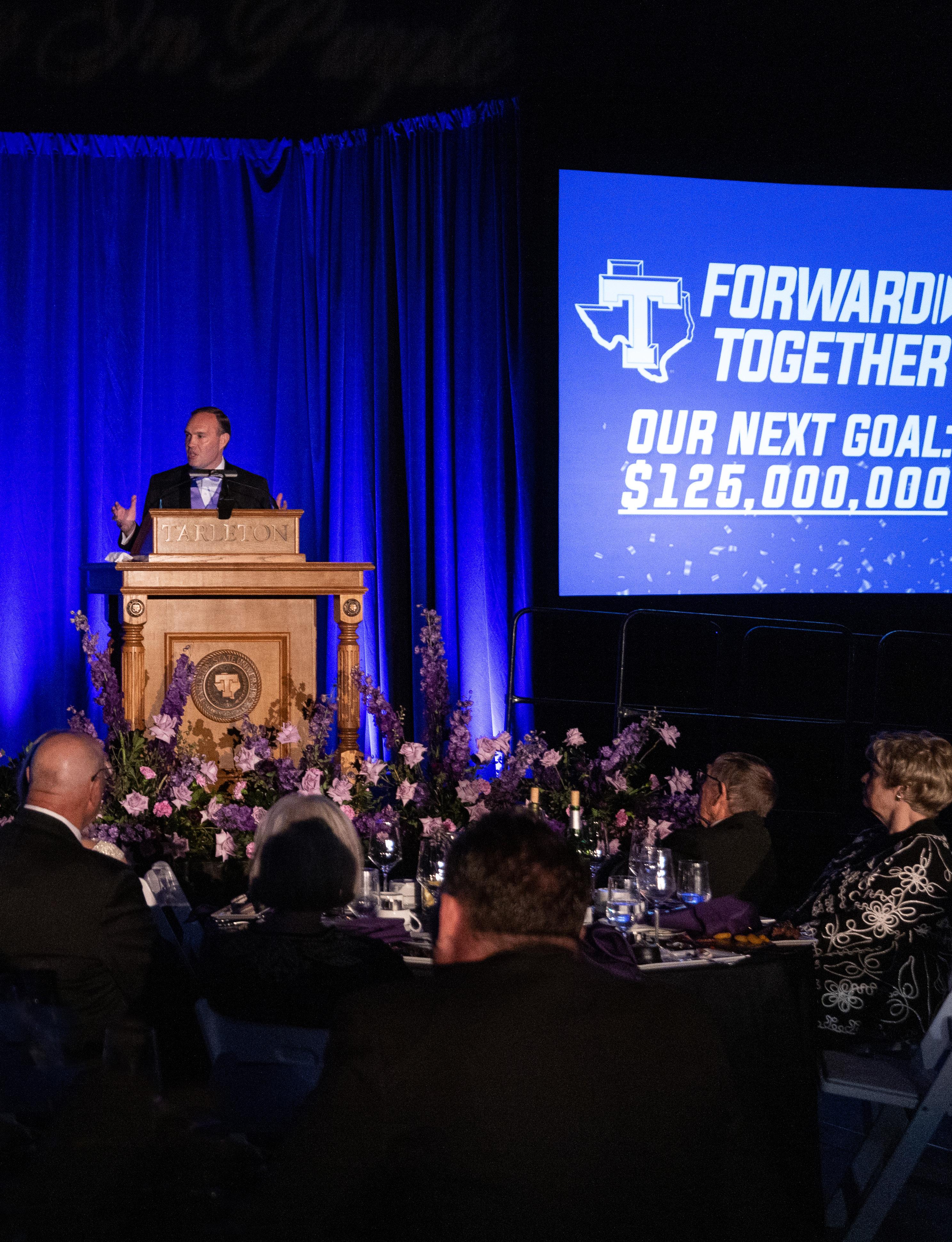
Legacy Awards recognize individuals and supporters who exhibit the university’s core values of excellence, integrity and respect. Recipients are selected by the President.
TAA awards honor individuals and supporters who bring distinction to the university through their career, community service or leadership. They are nominated by their peers and selected by the Tarleton Alumni Association Board of Directors.
Bob and Darla Doty, Tarleton and rodeo. It’s hard to think of one without the other. Thanks to the Dotys’ leadership and generosity over the years, Tarleton’s talented cowboys and cowgirls are recognized worldwide.
When they joined Tarleton in 1994 — Bob as rodeo coach and Darla as a coordinator in Career Services — they wanted to inspire students, encourage volunteers and promote philanthropy while turning a good rodeo program into a great one.
Bob developed Tarleton rodeo into a perennial powerhouse. He and his student-athletes secured two national and 10 individual championships in his 14 years as coach, making him top pick for 2006 National Intercollegiate Rodeo Association Coach of the Year after both the men’s and women’s teams swept the 2005 competition.
Bob and Darla worked tirelessly to obtain funding for practice arenas, livestock and scholarships. They found time to foster
academic excellence and to mentor. During Bob’s tenure more than 90 percent of rodeo team members graduated, and four were named outstanding graduates.
The couple endowed the Bob and Darla Doty Rodeo Scholarship. Darla, her brother, Jack, and sister, Debra, started the Mildred W. Buchanan Endowed Fund — in honor of their mother — to support students working in Tarleton’s Laboratory for Wellness and Motor Behavior.
Bob retired from coaching in 2008 and teaching in 2020, and Darla retired in 2015 as interim Vice President for Student Affairs. Both were inducted into the Tarleton Rodeo Hall of Fame in 2014, and Bob into the Cowboy Capital Walk of Fame in 2000.

From lean beginnings in South Texas, Joe R. Long became one of the most respected attorneys, entrepreneurs and philanthropists in the state. He earned his associate degree at what was then John Tarleton Agricultural College before transferring to the University of Texas at Austin for his bachelor’s and juris doctor. Tarleton’s Office of Diversity, Inclusion and International
Programs is named in honor of Joe and his wife, Dr. Teresa Lozano Long, celebrating their legacy of generosity and service. Their list of philanthropic donations tops $200 million to Texas nonprofits and universities. Their commitment to educational opportunity is far reaching.
After completing his undergraduate work, Joe served in the Korean War and taught high school in Alice, Texas, where he met his beloved Terry. From the moment they married, they made a commitment to champion education, medicine and the performing fine arts. They knew the opportunities that education afforded, and they wanted to make sure that others would have access to achieve success.
Joe eventually organized his own legal firm and continued his specialized practice of banking, savings and loan, insurance and securities law until 1988. He was part of a group that organized two banks in Austin — First State and Community National. He later chaired and bought control of both. Those banks acquired seven more financial institutions and were combined in 1989 as First State Bank, with Joe as Chairman and CEO for the next nine years.
The Longs received honorary doctorates of humane letters during Tarleton’s spring 2012 commencement ceremonies. Dr. Terry Long passed away last year at 92.
Following a 26-year military career, retired Air Force Col. Kenny Weldon played a significant role in re-establishing and growing the Texan Corps of Cadets. The corps, started in 1917 when Tarleton became a founding member of The Texas A&M University System, has more than doubled its enrollment in the past five years.
That rapid growth spurred creation of Tarleton’s Leadership and Military College in fall 2020.
A Stephenville native, Col. Weldon served as Commandant of the Texan Corps of Cadets and Dean of Tarleton’s Leadership and Military College until announcing his departure from the university last spring.
While on active duty, he led organizations at the installation, military department and Secretary of Defense levels. His military decorations include the Defense Superior Service Medal and Legion of Merit.
He is a graduate of the U.S. Air Force Academy with a bachelor’s in civil engineering. He also holds master’s degrees in engineering, environmental engineering and national security strategy from the National Defense University’s National War College in Washington, D.C.
A three-term Mayor of Stephenville, Col. Weldon serves on several local and regional boards of directors, including the Brazos Region G Water Planning Group, Workforce Solutions for North Central Texas and the Cross Timbers Fellowship of Christian Athletes. He is a deacon at the First Baptist Church in Stephenville.
He and his wife, Carrie, have twins Kyle and Kayla, both Texas A&M graduates.
The Honorable DeWayne Burns was first elected to the Texas House of Representatives in 2014. Growing up on a farm outside Cleburne, he had no idea that one day he’d have an opportunity to benefit families in Johnson and Bosque, and soon Somervell, counties (District 58), or to secure funding so his alma mater could construct and expand its campus in Southwest Fort Worth.
It was an unpaid internship with the Texas Department of Agriculture that opened the door to a career in state government. The 1994 Tarleton graduate worked with then-Agriculture Commissioner Rick Perry, researching proposals for the 74th Legislature.
Along the way, the Republican representative has served as Vice President of the Cleburne Independent School District Board of Trustees, a member of the Johnson County Economic Development Commission, President of the Farm Bureau, and Fire Commissioner for Emergency Services District No. 1. This is his fourth term in the Texas House.
In 2015 he helped obtain nearly $40 million from the Legislature to construct Tarleton-Fort Worth’s Central Administration Building, establishing a foothold for the university’s success on 80 acres of donated land along Chisholm Trail Parkway. He circled back during the 87th Legislature to author the framework for an additional $90 million for Capital Construction Assistance Projects — $25 million to expand in Fort Worth and $65 million for a College of Health Sciences building in Stephenville.
He is a true champion for higher education and for Tarleton at the Capitol in Austin. He is a member of the Tarleton Alumni Association and the Tarleton Association of Professionals.
Rep. Burns is married to his high school sweetheart, Tarleton alumna Jennifer Ormsby, and they are the proud parents of Parker, a Tarleton alumnus; Austin, a current Tarleton student majoring in communication studies; and Emma, who will attend
2022 Tarleton Alumni Association award recipients, selected by the TAA Board of Directors, from left: Justin Haschke, Outstanding Young Alumnus; Hilary Stephans on behalf of Saint-Gobain Abrasives, Distinguished Friend; and the Honorable DeWayne Burns, Distinguished Alumnus, with President James Hurley.

Tarleton this fall. The Burns family attends First Baptist Church in Cleburne and believes that service is a family affair inspired by faith and exemplified by Jesus Christ.
Justin Haschke has a passion for helping people from all walks of life design a path to financial freedom. As president and owner of BMY Wealth Management Group in Stephenville, he believes financial independence is imperative to having the life you want.
Justin also is a big believer in giving back to the community he calls home, serving on several community boards and organizations that benefit the people of Stephenville and Erath County. He is a member of the Stephenville Economic Development Foundation Board of Directors, Tarleton’s College of Business Dean’s Advisory Board, the Compassion Counseling Center and the Stephenville Optimist Club. He has been president and treasurer for the Stephenville Evening Lions Club and served on the Erath County Child Welfare Board of Directors and Stephenville City Council.
A member of Oakdale United Methodist Church, he serves on the finance committee. He is a member of both the Tarleton Alumni Association and the Tarleton Association of Professionals.
After graduating from Tarleton with degrees in interdisciplinary business and accounting, Justin started his career with Boucher, Morgan & Young and obtained his CPA
in 2012. He earned his Certified Financial Planner certification in 2021.
Justin loves spending time with his wife, Mikah (a Tarleton alumna), and their children, Boston, Lennux and Emmerson.
Longtime benefactor Saint-Gobain Abrasives has given liberally over the years to fund Tarleton fine arts performances, equine therapies, athletics and the Dick Smith Library. Saint-Gobain sponsors the university’s annual summer camp for aspiring engineers in sixth through ninth grades and has a long history of giving to the community.
Recently Saint-Gobain made a gift to name the Mechanical, Environmental and Civil Engineering/Mayfield College of Engineering Conference Room.
A Fortune 500 company and the second largest industrial employer in Erath County, Saint-Gobain partners with Tarleton to graduate work-ready engineers, bolster innovative research and expand the regional economy.
A subsidiary of the Saint-Gobain Group, Saint-Gobain Abrasives provides a comprehensive portfolio of solutions for all abrasion processes. The company manufactures diamond blades, masonry saws, floor grinders, core drills, coated abrasives and cutting stone products for customers worldwide. Its Stephenville facility, launched in 1976, employs more than 425, many of them Tarleton graduates.

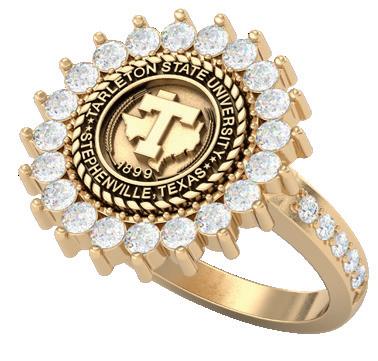




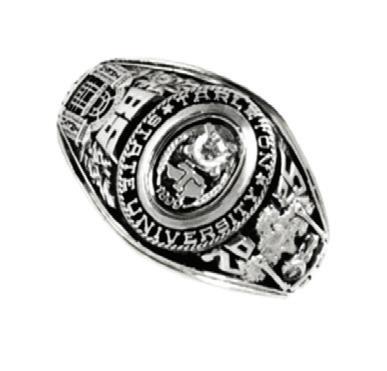
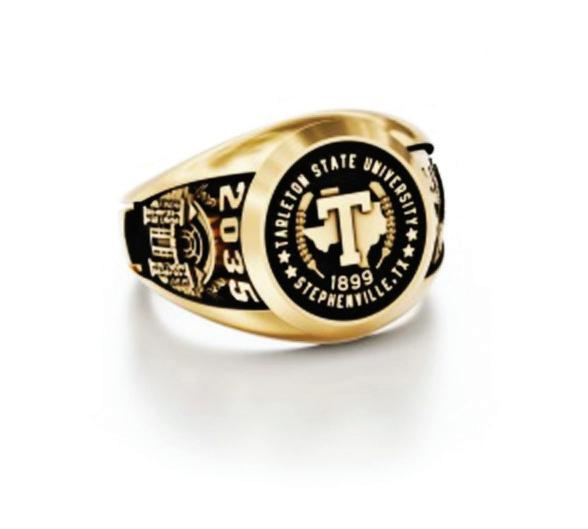
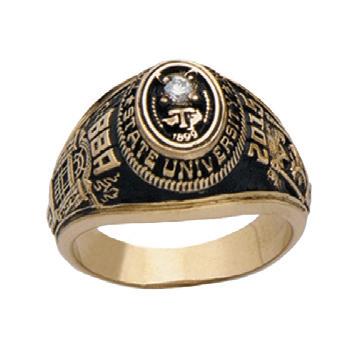


 Dr. Sherri Benn
Dr. Sherri Benn
Boldly going where not just anyone can go, Dr. Sherri Benn is closing in on her first year as Tarleton’s inaugural Vice President for Diversity, Equity and Inclusion. And if it seems she entered the Texan system at warp speed, that’s accurate — and with no signs of slowing down.
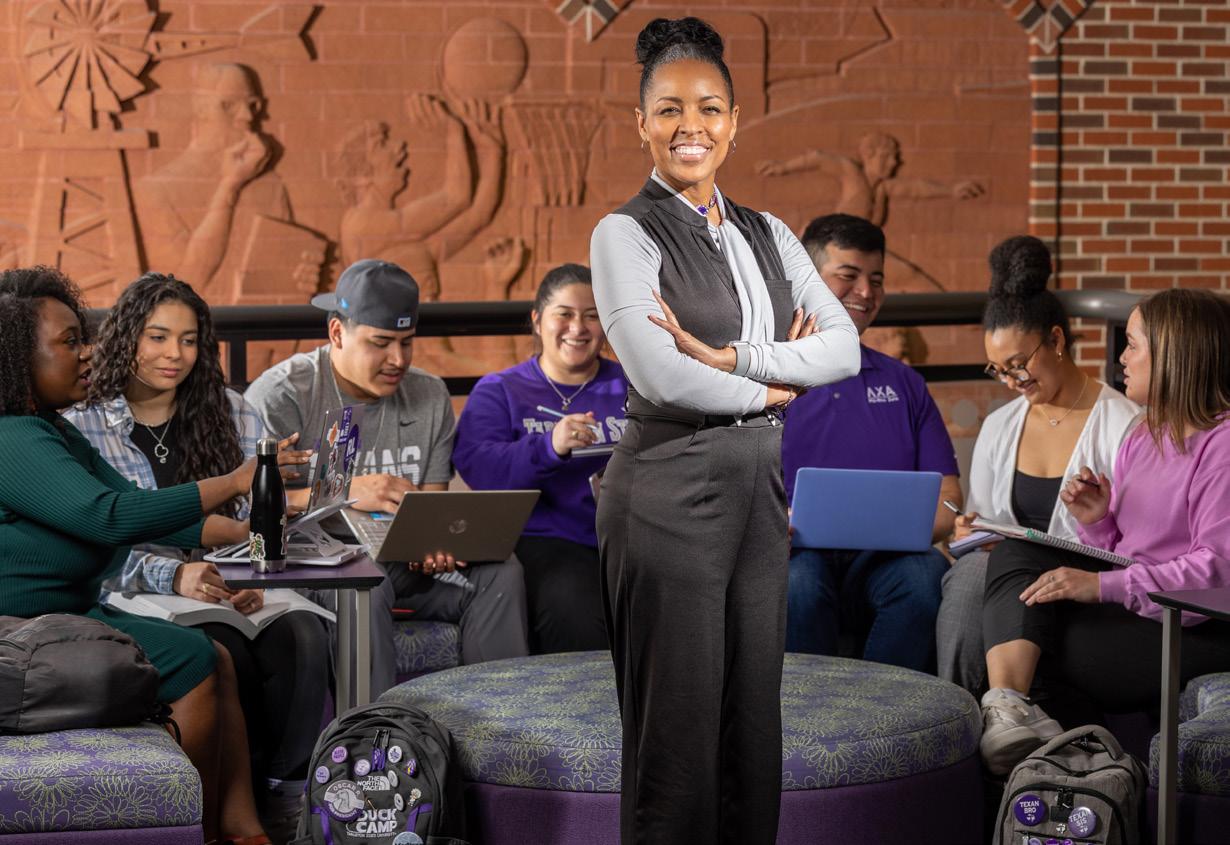
The dedicated Star Trek fan is motivated by the chance to explore new worlds. She had spent over 20 years at Texas State University in San Marcos, most recently as Assistant Vice President for Institutional Inclusive Excellence. As a Trekkie, she has taken cues from the pioneering series. For Dr. Benn — and she’s not alone in this — Star Trek was culturally significant in ways that are still playing out.
Star Trek debuted in September 1966 and was one of the first television series to promote racial diversity and multiculturalism, both in cast and themes. The crew of the USS Enterprise reflected numerous cultures and races, including alien ones. A young Dr. Benn found particular inspiration in Lt. Uhura: “Uhura was very significant to my mom. My mother helped me understand the significance of Nichelle Nichols’ role.”
Dr. Benn started at Tarleton in October but had attended home football games to get to know her new campus. Turns out Stephenville felt like home. A self-professed country girl, she grew up around Stillwater, Okla. She likes Stephenville’s vibe, and the communities around Erath County resonated with her youth.
Speaking to faculty, students and staff in her candidate presentations, she emphasized how important opening doors and providing access can be for the entire student population to gain equitable footing.
The oldest of nine children, she was the first African American to integrate her elementary school in Stillwater. And it was just as easy for her as it was for Jackie Robinson, Hank Aaron and so many others — it was miserable.
She was bullied at school and felt like an outcast. At one point her mother simply told young Sherri that she could no longer leave work to take her back to school, or to take her back to her former school. So Dr. Benn has seen firsthand the strength required to step up and step out, but the experiences only galvanized her resolve.
Not long after second grade, she made friends. She competed in sports and was the first African American cheerleader at Stillwater High School (ironically, the Pioneers). She stayed close to home after college, attending Oklahoma State, and soon transferred to Southwest Texas State University (now Texas State University) to join her best friend. The move established her mission to educate others on the importance of issues like diversity, equity, inclusion and access. In her own words …
Who were the mentors who helped you form your appreciation for advancing DEI?
First and foremost, my family. They were my earliest role models, and they set strong examples. My maternal grandfather served in the U.S. Army when it was segregated, and he became the first African American in the Oklahoma National Guard. He was also the first African American
in his community to run for the school board, and he eventually became school board president. He was the first African American in his community to run for mayor, and the first African American to become a constable. He was one of the last circuit riders and an ordained minister in the African Methodist Episcopal Church. He was a strong advocate for women in spiritual leadership and advocated for women to hold the highest office (bishop) within the AME denomination. He set a powerful example for our family regarding inclusion, equity and advocacy. He told me I could be and do anything I set my mind to.
I also have to mention my mother, one of the most courageous women I know. She made sure I went to college and learned to stand up for myself. She consistently affirmed my worth, dignity and value. She always encouraged me to be my most authentic self, and to especially stand up for others who didn’t have some of the privileges and resources we had.
My mom was the one who connected me to Star Trek. I came to understand in the subtext related to Uhura’s role that Gene Roddenberry (creator and producer of the original television series) imagined someone like me in a prominent position with high visibility. Everyone was included in the world he imagined for our future. It was powerful and empowering for a little Sherri. My mom ensured that we were continuously exposed to a variety of high-achieving individuals with whom we could identify.
In your VP candidate presentation, you stressed the importance of access along with diversity, equity and inclusion. When did you realize that removing barriers and broadening thoroughfares would lead to advocating for access? I have been curiosity driven since childhood, always intrigued and compelled by the why’s of situations. Talking late into the night, my mom used to tell me, when I got deeply curious and insatiably inquisitive, “You can keep talking and asking questions, baby, but Mama is going to sleep now.”
wisdom and a desire to do something, and all of that catalyzed my passion for advocacy, accessibility, equity, inclusion, justice, fairness, etc.
Advancing my education exposed me to more complex ideas, that required critical reflection, exploration and intellectual challenge. These things, along with my lived experiences and my family’s commitment to community uplift, helped me to begin deconstructing my observations at a macro-level, rather than trying to make sense of the symptoms (patterns and outcomes) of social issues.
Dr. Benn learned early on that any successful voyage requires a tactical navigation chart (like Tarleton Forward 2030: Our Future-Focused Strategic Plan). To help plot the course, she keeps a close eye on other leading institutions and organizations to implement DEI practices and protocols.
My mom was the one who connected me to Star Trek. I came to understand in the subtext related to Uhura’s role that Gene Roddenberry (creator and producer of the original television series) imagined someone like me in a prominent position with high visibility. Everyone was included in the world he imagined for our future.
Before I began my career in education, I was a probation officer and supervisor for a battered women’s shelter and rape crisis center. My transition into university life was as a coordinator for student justice. I began to observe similar outcomes within each of these professional experiences, specifically discernibly disparate outcomes. Sometimes things just seemed off, and it would really bug me. My grandmother had this thing she would say if someone complained about something. She’d say, “If the situation is bugging you, seems like it’s something you need to do (something about).” I always took this to heart, and anything she said, because I was very close to my grandmother and she fascinated me.
She benchmarks exemplars like Michigan State, a longtime trailblazer, as well as those who have successfully navigated transition post-social unrest, like the University of Missouri; those who have demonstrated a commitment to supporting initiatives that serve diversity professionals across the nation, like the University of Oklahoma; those who have been recognized for work with men, like St. Philips College; and those elevating diversity and inclusion in international education, like Spelman College.
“I utilize the standards of the National Association of Diversity Officers in Higher Education,” she said, “because they provide an evolving platform of national DEI standards.”
Access for all through equitable inclusion can open the frontier for generations of students, and Dr. Benn looks forward to being a part of that.
She was inspired by her own experiences and by the strong examples of family and friends. Some, like the cast of Star Trek, modeled leadership through acting. Capt. James T. Kirk’s words still carry an impact.
So I continued pursuing my education because I wanted to better understand the things that bugged me, such as injustice, unfairness, people being left out, people’s pain and struggles. I can’t say that there was one particular moment; rather, there were many observations, frustrations, curiosity, Grandma’s
When referencing the U.S. Constitution, Capt. Kirk (William Shatner) said: “Look at these three words written larger than all the rest, and with special pride never written before or since. Tall words, proudly saying ‘We the people.’ These words and the words that follow must apply to everyone, or they mean nothing.”

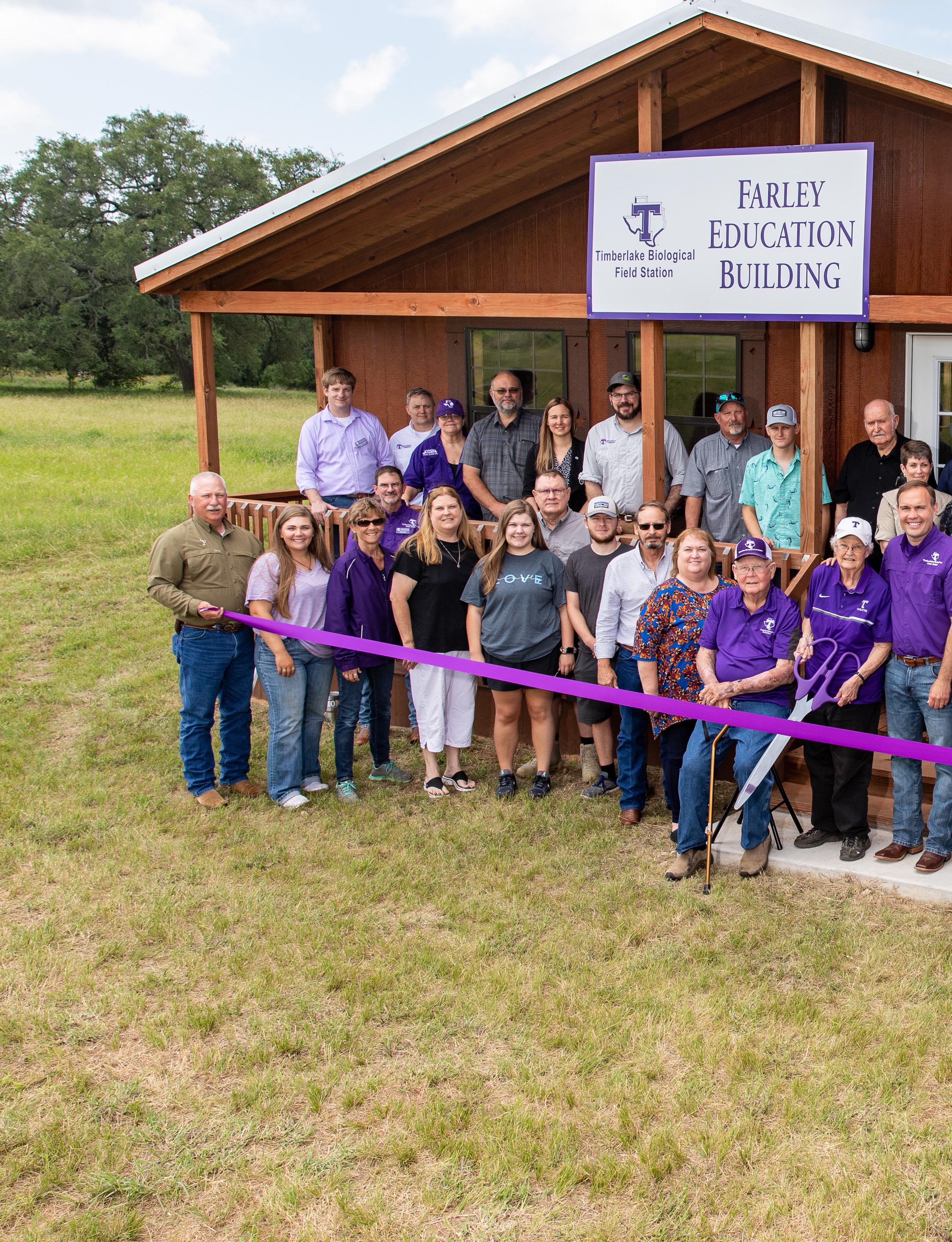
Dr. Lamar Johanson and his wife, Marilynn (formerly a Timberlake) — center front — join family, friends and Tarleton faculty and staff for the grand opening of the Farley Education Building at the Timberlake Biological Field Station.
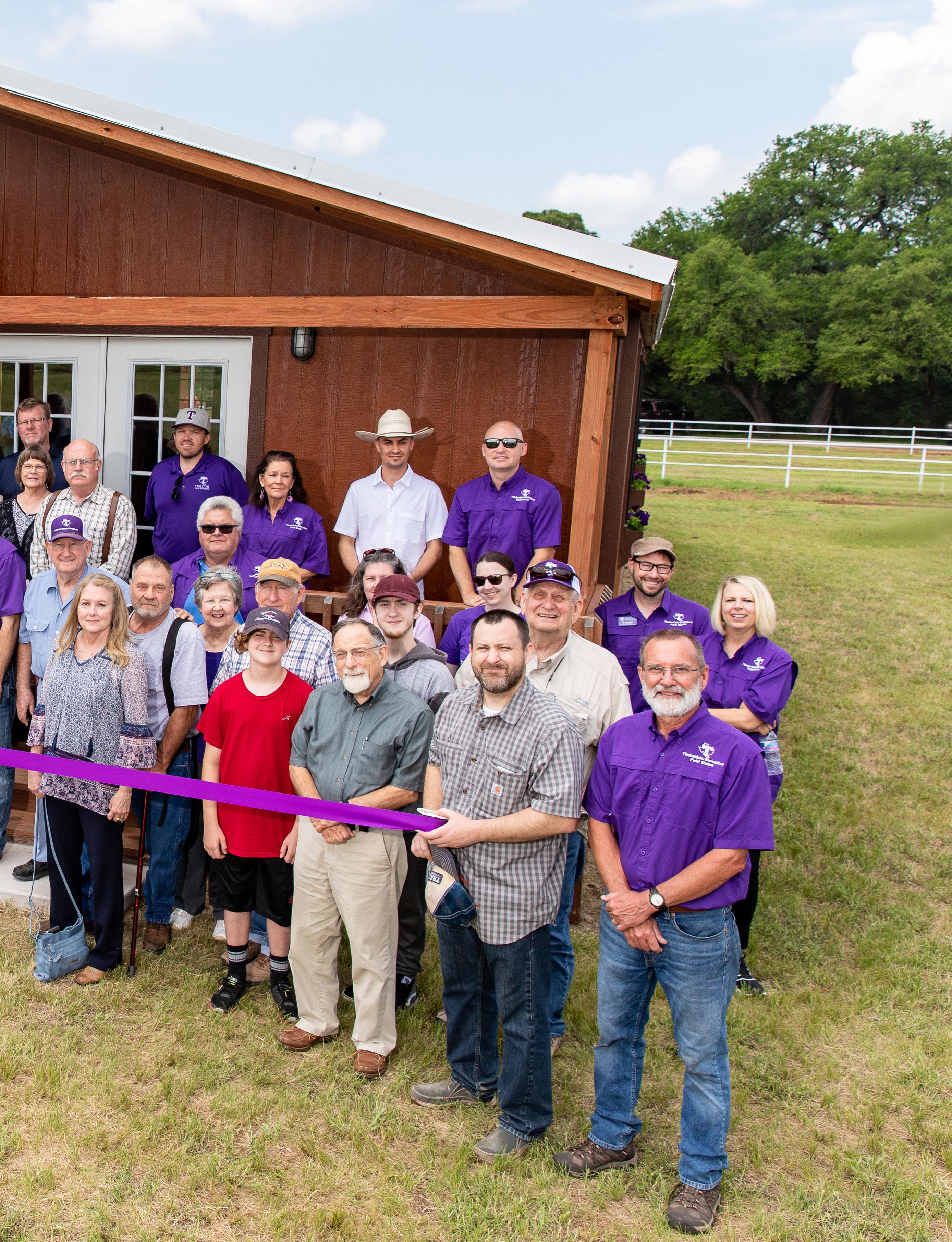
The relationship of the families of W.C. Timberlake and John Joseph Farley has lasted five generations and more than a century, and for a good portion of that time it has centered around Tarleton State University.
Timberlake owned a ranch in the lower Rye Valley in Texas’ Cross Timbers Region. He and his son, Roy, were well known for their hospitality and for enjoying the company of families that spent time at the “River” campground, including the Farleys.
John Joseph “PaPa” Farley repaired a broken windmill for the Timberlakes and was invited to come to the site, marking the beginning of a friendship that enveloped their children and grandchildren, including Dr. Marilynn (Timberlake) Johanson and John Farley.
Marilynn would become the wife of Dr. Lamar Johanson, John would marry Lillie May Reid, and the two couples’ lives would intertwine.
Education was the thread that connected them.
John and Lillie May, while students at Tarleton Agricultural College in 1930, met in instructor Lula Gough’s botany class, sparking a romance, marriage and a deep affection for the school.
John lived at home in Dublin and rode one of the many passenger trains in the morning to Stephenville, paying 10 cents, then walked up Tarleton Street to the campus. In the evening he’d catch the train back to Dublin.
Lillie May lived on campus. She helped legendary English teacher Dollie Marie Glover proofread the weekly J-TAC, then she delivered it to the Stephenville Empire-Tribune for printing.
With a career in mind, John left college in 1931 and went to work for what was then Humble Oil Co. Lillie May stayed in school, graduating with an associate degree, and took a job teaching school in Clairette.
John, while working in the Panhandle oilfield, drove to Dublin one day in his new Model A Ford, picked up Lillie May and
drove on to Fort Worth where they were married in the First Christian Church. The two lived all over the Texas oil patch, as evidenced by one son, Terry, graduating from high school in Big Lake, son Reid in McCamey and son Joe in Abilene.
Along the way, John insisted that Lillie May go back to school. She earned her bachelor’s degree from the University of Texas and turned it into a career as a reading specialist.
Eventually the Farleys moved to Abilene and John reconnected with the Timberlake Ranch and the Colorado River. And Tarleton. He and Marilynn’s father became fast friends, fishing and hunting together on
Both products of San Saba, Marilynn and Lamar Johanson were married at the First Baptist Church there in 1960. They established their first home at Chanute Air Force Base in Illinois where Lamar was clinical laboratory officer in charge of the hospital lab and pharmacy.
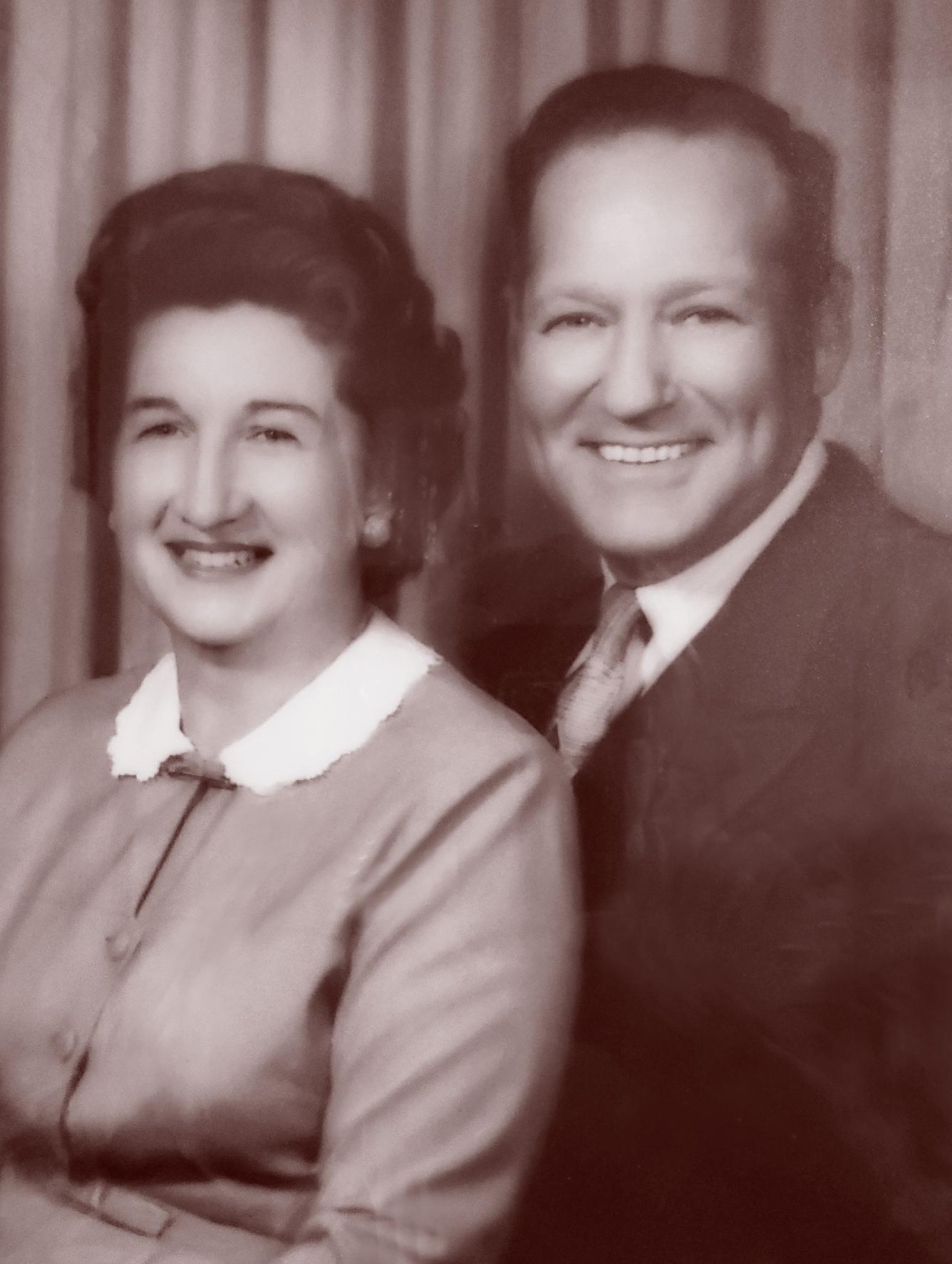
Following completion of his military duty, the couple moved to Stephenville in 1961 where Lamar had accepted a position at Tarleton as an instructor in the Department of Biological Sciences. Marilynn was hired to teach vocational home economics at Hico High School.
In 1963 Lamar took a leave of absence to earn his doctorate in plant physiology and biochemistry from Texas A&M University. He and Marilynn returned to Tarleton in 1967.
Over her career, Marilynn taught in the Hico and Stephenville high schools and was an education specialist with the Texas Education Agency and the high school and elementary school principal in the Strawn and Goldthwaite ISDs. She retired in 1995 with 34 years of service to Texas public schools.
Lamar retired in 2001 after 40 years at Tarleton. Among other duties, he served as a biological sciences Professor, Chairman of the Department of Biological Sciences, Dean of the College of Arts and Sciences, and the first Executive Director of Tarleton State University System Center-Central Texas in Killeen.
The pair also were university benefactors, making a life estate gift of the ranch, estimated to exceed $5 million in value.
The gift of the ranch, now the Timberlake Biological Field Station, was done to advance environmental research, engage students in scientific discovery, and promote stewardship of the natural world.
It is maintained as a model field station focused on education, outreach and research associated with the ecological integrity of the Colorado River and the diverse flora and fauna of the Cross Timbers and Edwards Plateau ecoregions of Texas.
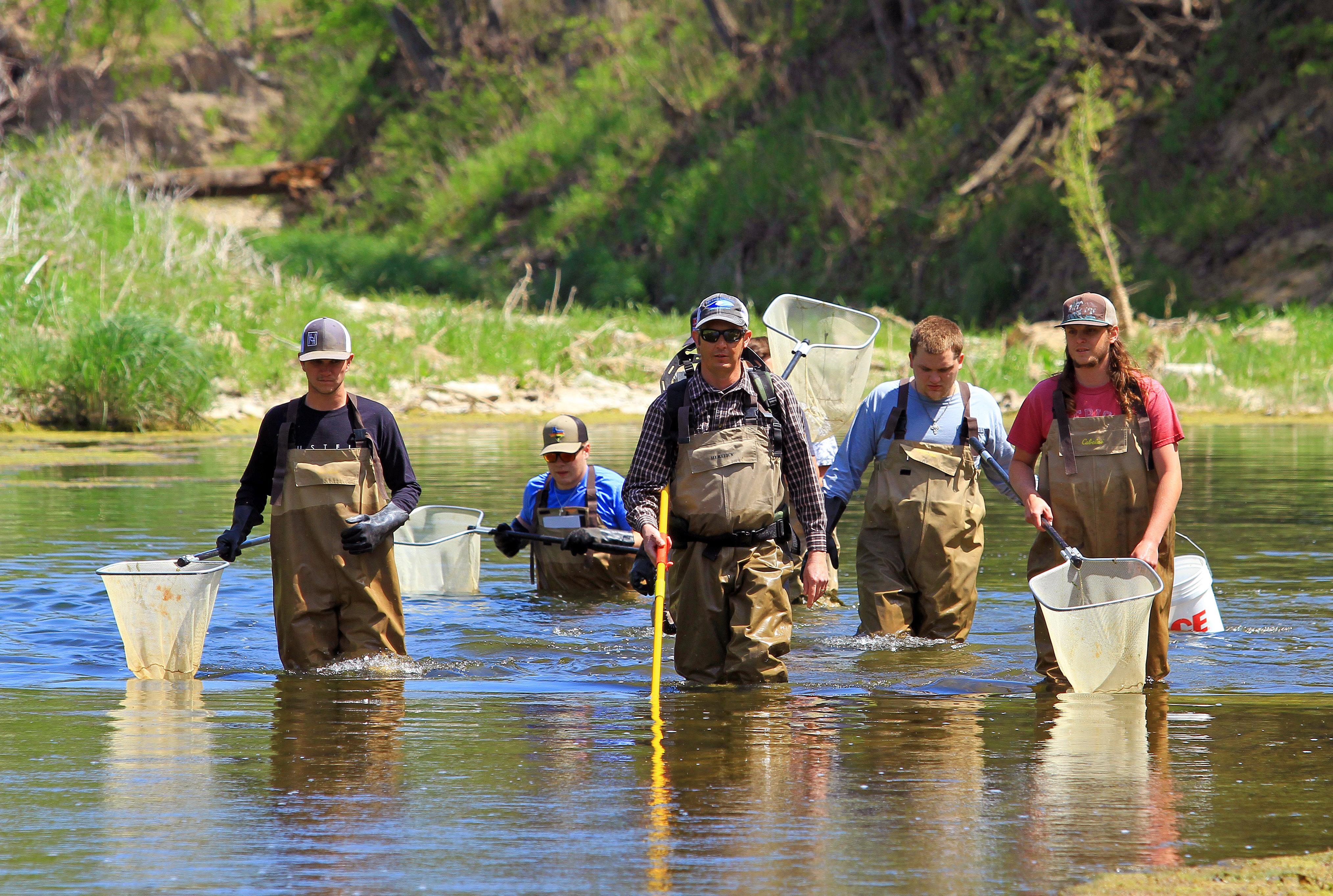
TBFS serves as a host site for the Research Experiences for Undergraduates (REU) program and is a member of the Undergraduate-Field Experiences Research Network (U-FERN), both of which the National Science Foundation sponsors. In 2021 the Farley Education Building was christened on the land that drew the two families together. Dr. Johanson spoke
of the Farleys’ emphasis on education in his remarks at the building’s naming ceremony.
“Lillie May had an associate degree, a bachelor’s degree, and the three boys are all graduates of Texas A&M,” he said. “There is at least one PhD in the family and several master’s degrees, and one of John and Lillie May’s greatgranddaughters received her bachelor of nursing degree from Texas Tech. John and Lillie May’s three greatgrandchildren have recently received their college degrees.
“Kelsey Farley earned her bachelor's in ranch management from TCU. Kayti Girdner received her bachelor of nursing from Texas Tech, and her brother, Caleb, received his bachelor's in kinesiology from Texas Tech.”
Lamar and Marilynn now live on the ranch W.C. Timberlake bought in 1902. Located 15 miles from Goldthwaite, it is surrounded on three sides by the Colorado River. And holds generations of history for two families.
Apair of longtime Tarleton professors are setting a high bar with recognition for their accomplishments in scholarship and teaching.
Dr. Daniel Marble was recently named a Piper Professor, one of the most prestigious awards for teaching excellence in the state, and Dr. Jason Sharp has won a trifecta of elite honors. He is thought to be the first faculty member to receive Tarleton awards for teaching, scholarship and service.
Since joining the faculty 24 years ago, Dr. Marble, a Professor in the Department of Chemistry, Geosciences and Physics, has garnered attention for his contributions to students and the university.
He became just the seventh Tarleton educator to be named a Piper Professor, joining Dr. O.A. Grant, who won the award in 1962; the 1978 honoree, Dr. Donald Zelman; Dr. Timothy Flinn in 1984; Dr. Jack Russell in 1997; Dr. Christopher Guthrie in 2005 and Dr. Linda Schultz in 2013.
The award, begun by the Minnie Stevens Piper Foundation in 1958, annually honors 10 outstanding full-time teachers for academic, scientific and scholarly achievement and for dedication to the teaching profession.
“I tell my students that they need to pursue a career that they are passionate about and pursue excellence in that career,” Dr. Marble wrote in the award nomination packet. “While doing physics is fun, I discovered that my real passion was in the teaching of physics.”
Dr. Marble has given more than 150 presentations and produced 50 publications in peer-reviewed journals, including Nuclear Instruments and Methods and Physical Review, relating to ion-atom collisions, ion beam characterization of materials, accelerator technology and science education using accelerators.
“I was fortunate to have been taught by a nationally recognized physics teacher in college,” he said. “He spent time with me and cared about my success in and out of the classroom. It was obvious that he enjoyed what he did for a living and was making a difference in the lives of his students. I decided that I wanted to follow his path and switched from going to medical school to pursuing a PhD and a teaching career.”
Prior to Tarleton, Dr. Marble was a physics Assistant Professor at the United States Military Academy at West Point and a visiting scientist at the Materials and Physical Science Directorates of the Army Research Lab.
He earned a bachelor’s in electrical engineering from the University of Houston and both his master’s and PhD degrees in physics and accelerator-based atomic physics from the University of North Texas.
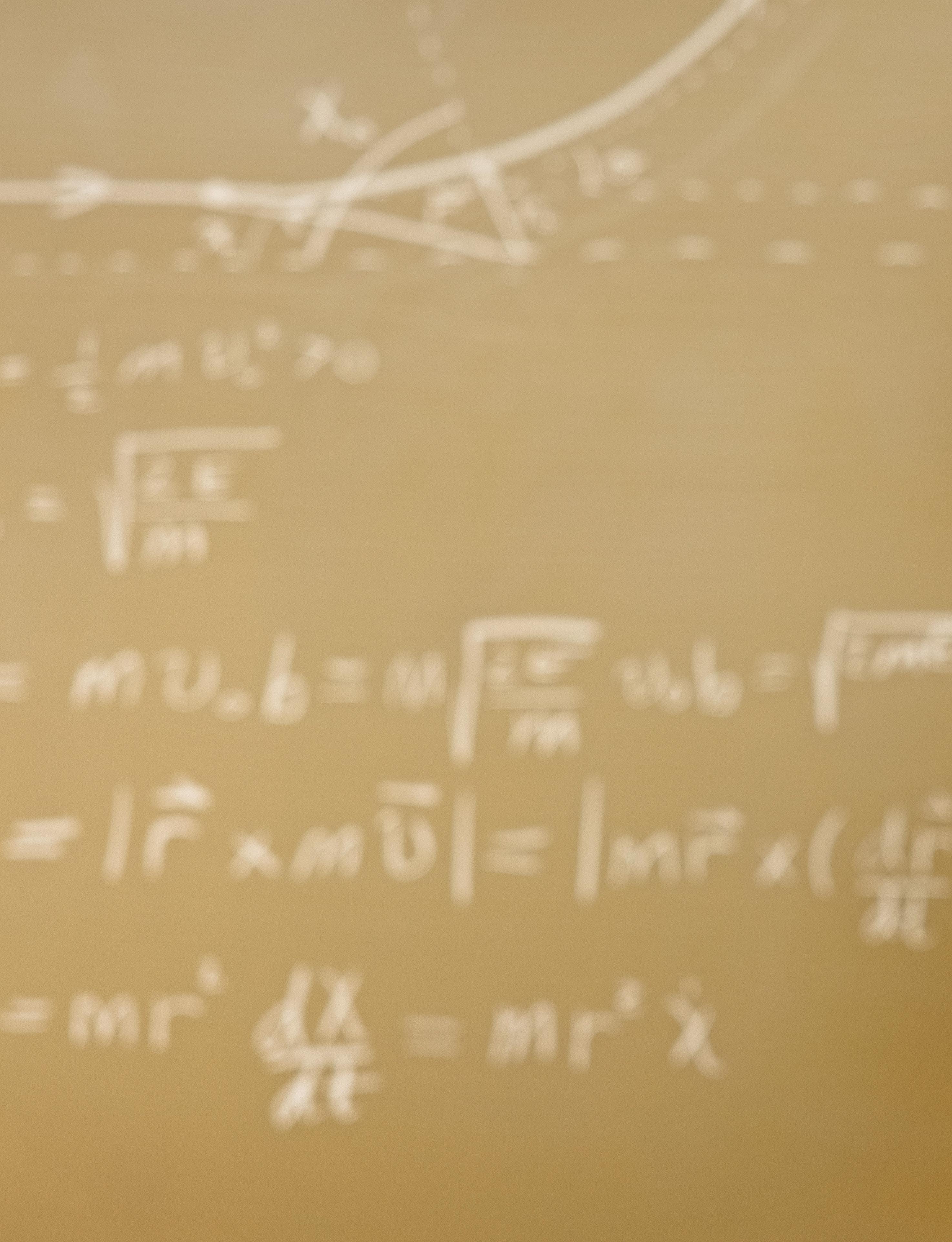
He is the Texas Section Representative for the American Association of Physics Teachers, and in 2019 he earned the Mary Todd Monroe Distinguished Service Award, given by the Texas Section of the American Association of Physics Teachers, and the Tarleton Community of Scholars Award.
 Dr. Daniel Marble
Dr. Daniel Marble
He also has been honored with the Distinguished Civilian Service Medal by the U.S. Army, the Tarleton College of Science and Technology Faculty Award for Student Success, Tarleton’s inaugural Faculty Excellence in Scholarship Award, and the Jack and Louise Arthur Distinguished Faculty Award for Excellence in Teaching. He was named a Texas A&M University System Regents Professor for the 2020-21 academic year.
“Teaching is about sharing,” Dr. Marble says. “If you are passionate about your profession, then you want to share that passion with others.”
Dr. Sharp, a computer information systems Professor in the College of Business, received the Jack and Louise Arthur Excellence in Teaching Award for 2016-17 and the 2013-14 Faculty Excellence in Scholarship Award, leading to kudos from colleagues like Dr. Chris Shao, Dean of the College of Business, who calls him “unrivaled” as a teacher.
Dr. Sharp has received the O.A. Grant Teaching Award and last year received the Barry B. Thompson Service Award. The latter honor is especially meaningful, as he and Dr. Thompson grew up in the same small West Texas town and both graduated from Kermit High School and Tarleton. Dr. Thompson was Tarleton President during Dr. Sharp’s time as an undergraduate and was, in Dr. Sharp’s words, “the exemplar of outstanding service to students, the campus community and significant student-faculty interactions outside the classroom.”
Dr. Sharp holds two Tarleton degrees and joined the faculty in 2001. He primarily teaches programming, systems analysis and design, and database design and administration.
He was a Faculty Fellow in the Center for Instructional Innovation and has served on university, college and departmental committees and task forces. His scholarship appears in numerous peer-reviewed journals and conference proceedings, and he has presented regularly at international, national and regional conferences.
“Dr. Sharp brings dedication, competence and a can-do attitude to every service request made of him,” said Dr. Robert Pellegrino, head of the Department of Marketing and Computer Information Systems. Adds one of Dr. Sharp’s students:
“He has something that I have only found in a few instructors. He really seems to care about students and wants to make sure they make it, not only in his classes but in life.”
Dr. Sharp has received numerous awards within the College of Business, including the Faculty Excellence in Student Success Award, Outstanding Contributions to Student Learning Award, and Outstanding Research Productivity Award. Dr. Leah Schultz, Professor of computer information systems, reminds that he is one of the business college’s most prolific researchers.
In 2014 he was the Tarleton Piper Professor nominee as well as a finalist for the Fulbright Scholar Program. He received the Student Recognition Award for Teaching Excellence from The Texas A&M University System in 2012.
“In my 28 years at Tarleton, I have interacted with hundreds of faculty members,” said Dr. Dennis Jones, Professor of computer information systems. “Dr. Sharp is one of the most talented faculty members I have ever had the opportunity to work with.”
With almost five decades of Tarleton service between them, Dr. Marble and Dr. Sharp do indeed set a high bar.


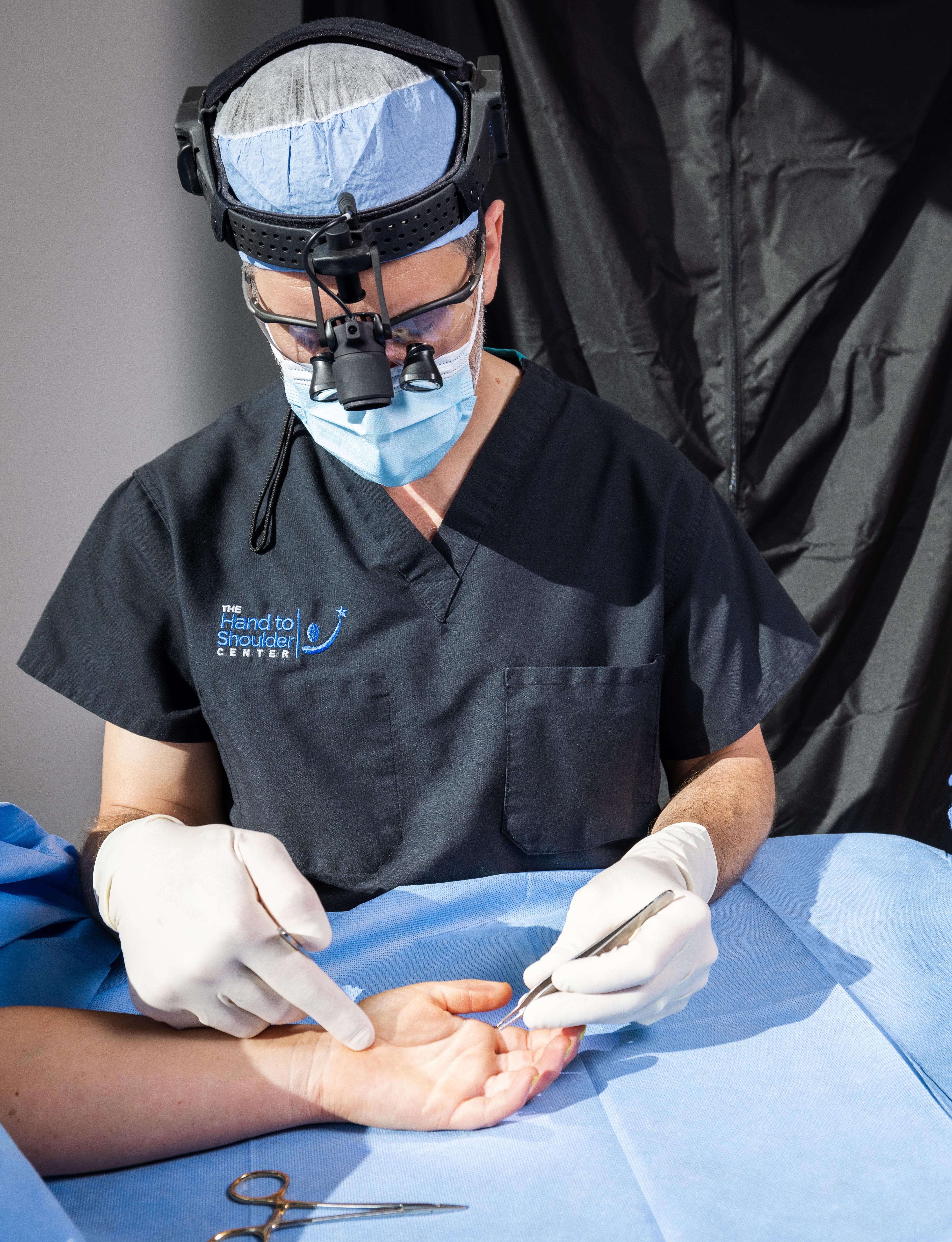 by Lindsay Hope
by Lindsay Hope
Orthopedic surgeon Dr. Nathan Lesley of The Hand to Shoulder Center in Fort Worth conducted a study with Tarleton students in 2020 with one goal: show the benefits of performing hand procedures in-office without sedation.
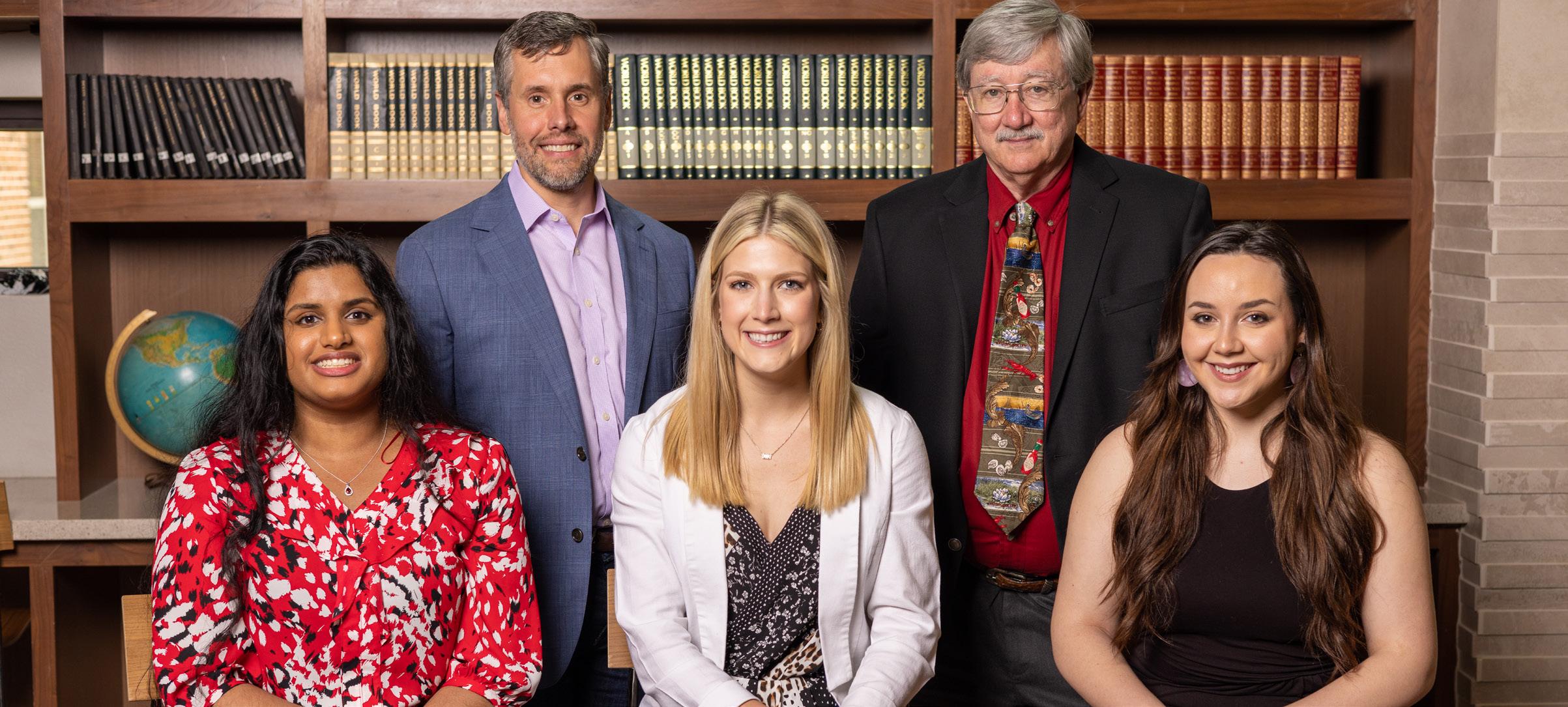
Mission: Accomplished.
The Wide-awake Local Anesthesia No Tourniquet (WALANT) procedure, commonly used in Canada, Europe and a few locations in the United States, has become an optimal choice for issues like carpal tunnel syndrome, Dr. Lesley said at a May 2021 Tarleton Honors College Dean’s Circle presentation discussing the study’s preliminary findings. “It’s the same procedure minus a lot of the complications. You don’t need to be doing these things under general sedation if you can avoid it.”
Dr. Lesley is a Tarleton Presidential Honors alumnus who attended medical school at Texas Tech University, did an orthopedic surgery residency at John Peter Smith in Fort Worth, and completed a Hand, Upper Extremity and Microsurgery Fellowship at Brown University in Providence, R.I. Prior to the WALANT study, he had connected with Tarleton staff he met at a Presidential Honors fundraiser hosted by Honors College Dean Dr. Craig Clifford.
During a tour of his facilities, Dr. Lesley described the obstacles he faces trying to do more WALANT procedures.
“There are a lot of limitations, mainly in terms of getting paid,” he said. Insurance companies prefer traditional surgeries requiring anesthesia and performed at hospitals.
Knowing how beneficial WALANT can be for patients and wanting to expand these services throughout Texas, Dr. Lesley needed talking points to negotiate with payers.
“This technique has been thoroughly studied and validated, but it has not been widely adopted in the United States,” he said. “The lack of engagement in the U.S. is due mainly to how our healthcare system works, wherein physicians are not incentivized to perform surgery in the office. We are hoping to create a model that will drive change in this area.”
That’s when Dr. Clifford introduced him to three “really amazing” students.
Sharon Cherian (biomedical science), Jacquelyn “Joy” Brewer (biomedical science) and Emily Moore (economics) collaborated with Dr. Lesley to collect WALANT data illustrating patient satisfaction, complications avoided and estimated cost savings.
Dr. Lesley knew how difficult quantifying everything would be. “It was a big request to those students because I didn’t know how they would find that.”
Joy and Sharon examined incident reports, satisfaction rates and complications. They gathered 48 responses from patients who had the WALANT procedure at Dr. Lesley’s facility. Post-surgery, 96% said that if they had a second hand surgery they would choose WALANT. The procedure was rated “better than expected” by 81%, and 89% would recommend it to a friend.
Other important results: less time spent at the facility, pain “minimal to none,” and decreased anxiety. Convenience was a factor, too, as the patients could drive themselves to and from the surgery and did not have to forego eating.
“There is no longer as much of a mystery, what happens in surgery,” Dr. Lesley noted. “Patients can actually see what we’re doing and have their questions answered.”
Part of higher patient satisfaction stems from fewer complications. Joy and Sharon pointed to potential issues with traditional hand surgery such as IVs, general anesthesia and tourniquet-associated complications. Dr. Lesley highlights research on epinephrine use in lieu of a tourniquet.
“Epinephrine is safe. Now there’s no debate,” he said. “That’s how I can do these procedures without the use of the tourniquet.” The students also found decreased risk of infection with WALANT.
Fewer complications bring lower costs. In comparing 14,754 procedures, Emily found WALANT avoiding costs associated with typical surgical items such as an IV ($500-$7,000 per surgery). Indirect savings were found in eluding complications that can require additional treatment.
With the number of American adults estimated to be suffering from carpal tunnel syndrome (2,445,000 in the third quarter of 2015, according to her research), Emily projected the overall potential societal costs savings at close to $4 billion if only 25% pursued WALANT surgery.
“Dr. Lesley has been a blessing. He has taught me a lot and encouraged me as someone striving for a career in the field,” Joy said. Sharon explained that she now better understands the factors that influence patient healthcare and how research can change a system. Emily: “It was great that I was able to practice research and analysis skills. Communicating results to Dr. Lesley was very rewarding.”
All three students graduated in 2021. Joy is taking prerequisite courses to apply for physician assistant school, Sharon is preparing applications for medical schools, and Emily is attending graduate school at the Bush School of Government and Public Service at Texas A&M University.
Dr. Lesley also found the study to be worthwhile and has shared the results with UnitedHealthcare. “They’ve been very receptive,” he said.
“Acquiring contracts with major payers is an arduous process. We have had success with one major carrier, and are hoping this will help initiate multiple conversations with other insurance agencies.”
Dr. Lesley’s practice was recently featured on the Dallas podcast “The Cutting Edge,” which can be viewed on YouTube.
“Previous guests on this podcast have included high-level administrators from major carriers such as UnitedHealthcare,” he said. “Through such connections, we hope to continue our current momentum and acquire new contracts.”
Dr. Lesley has benefited from partnering with his wife, Amber Lesley, who is an internal medicine physician and also a Presidential Honors graduate. Three years ago they combined practices, moved to the Clearfork region of Fort Worth and built a two-story medical office building that now includes 10 physicians and a physical therapy practice.
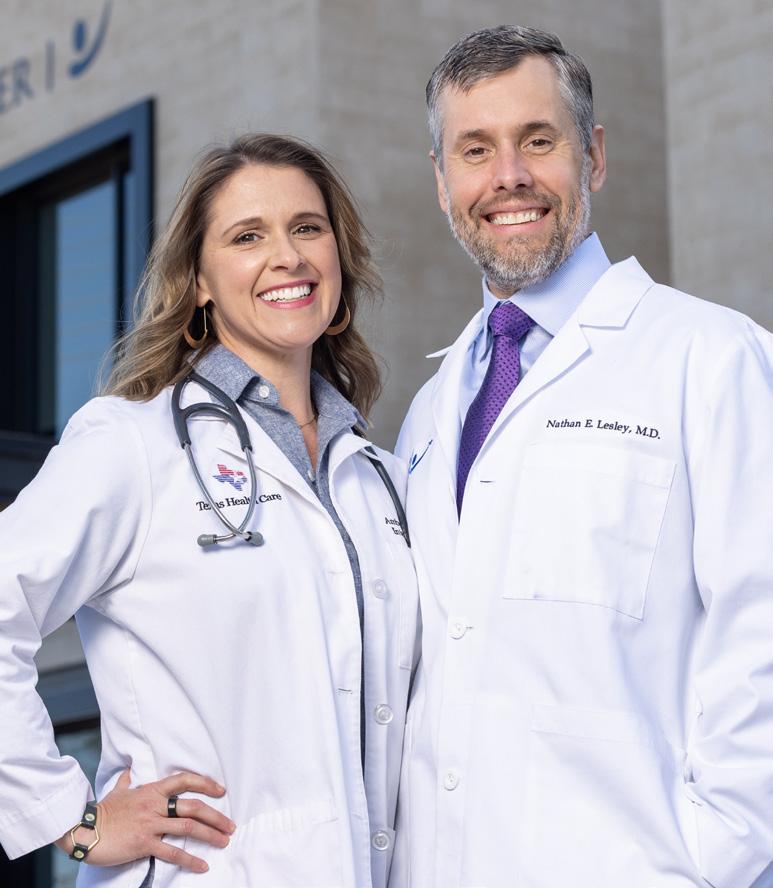
“Amber and I have been a team since we met at Tarleton. We are both part of the same medical group, Texas Health Care, which she joined while I was still in residency. She and I worked together to build our current office facility, which required a huge financial and professional risk. Amber has not only made this possible, but having the opportunity to work alongside my best friend has made this the most fun and exciting adventure of my professional life.”
Dr. Lesley began performing WALANT procedures in his office in July 2020 and has done almost 2,000. The practice serves Weatherford and Lake Worth with a goal of expanding further into DFW.
“We have spoken to upper extremity surgeons in other areas of Texas,” he said, “and we’re hoping to open one to two more locations within the next year.”
That study surely didn’t hurt.
“I loved working with the students,” he said. “It was rewarding because I was a part of the [Presidential Honors] program. These students are just extremely impressive.”
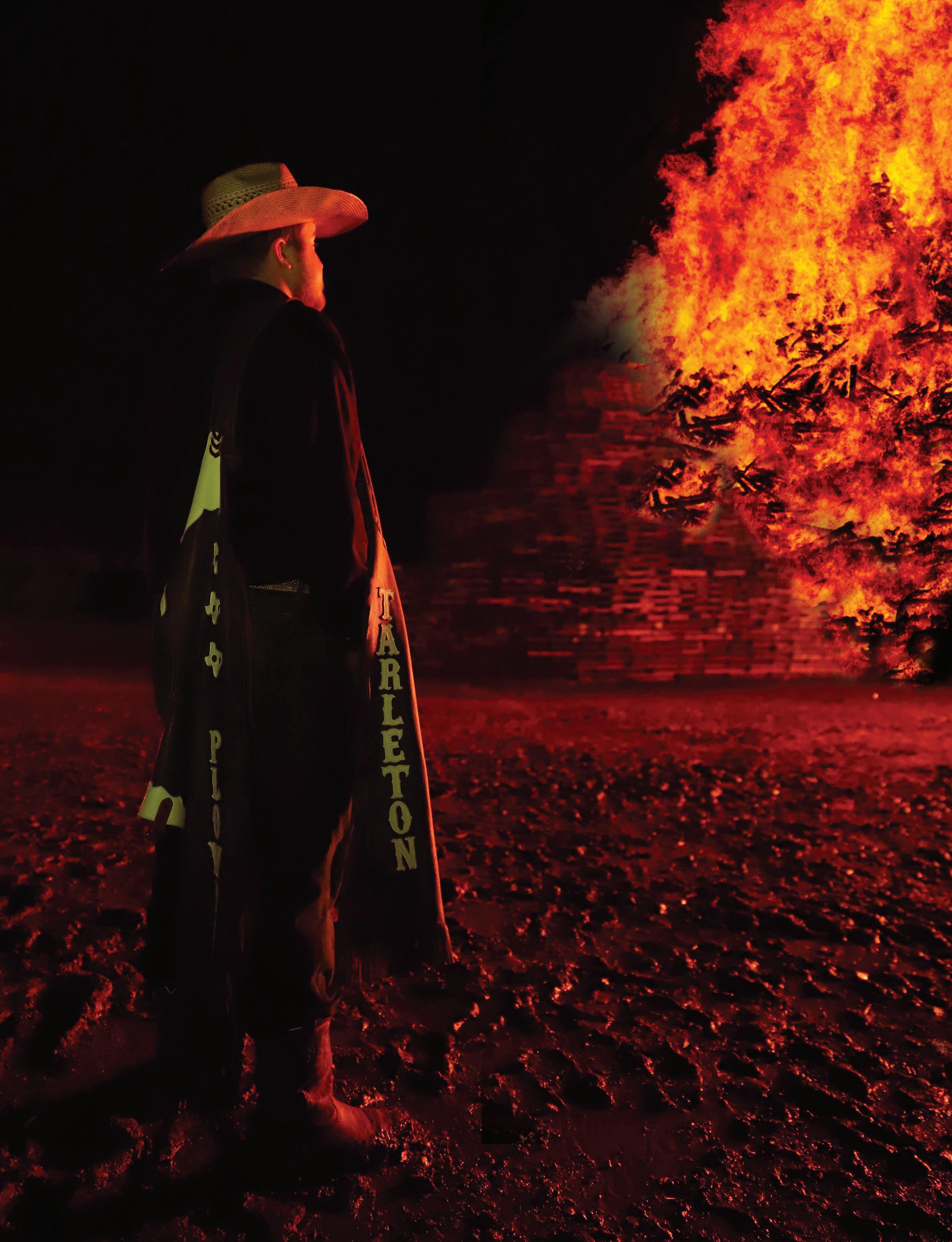
As Chance Cain takes the reins of Tarleton’s new-look men’s golf team, he joins a pantheon of university legends. The program dates to 1929 and has had five coaches, including W.J. Wisdom, Earl Rudder and Tarleton Hall of Fame coach Donnie Campbell. Cain makes No. 6.
“I’m grateful for the opportunity to come home and get this team back in action,” he said. “It’s an honor. I’m excited to rebuild it.”
The program was put on hiatus in the early stages of Tarleton's move to NCAA Division II in 1995.
Cain comes to Tarleton following six years as the assistant coach at Utah, where last spring the Utes snapped a 29-year postseason drought with a berth in the NCAA West Regional.
“Chance has experience at the highest level of Division I,” said Vice President for Intercollegiate Athletics Lonn Resiman. “He brings experience, but what stands out most is his energy, enthusiasm and work ethic. I have no doubt that Chance will do a tremendous job and quickly bring a prominent men’s golf program back to Tarleton State University.”

After a strong performance at Big Spring High School, Cain played two seasons at Midland College. He helped guide his team to the 2008 NJCCA National Championship before completing his associate degree and moving on to Texas Tech, where he earned a bachelor’s in general business in 2010 and a master’s in sports management in 2012.
He began his coaching career as a volunteer assistant at Texas Tech in 2012. He was part of the 2013 squad that made the NCAA Division Tournament and finished 14th overall. It was the program’s third best finish in school history. The following season the Red Raiders finished second in the Big 12 Tournament.
“I’ve been a part of some great men’s golf teams, and I want to add Tarleton to the list,” he said. “Men’s golf has been a storied program here with a rich history of success. I’m ready to build it to the standards our university and fans deserve.”
Utah had some of its best seasons during Cain’s time on staff. In 2017, just his second season, the Utes notched their first event win since 2009 with a firstplace finish (-22; 842) at the Mark Simpson Invitational at the University of Colorado. Utah improved at the Pac-12 Championships in each of Cain’s first four seasons, tying for fifth in 2019. Following Utah’s success in 2021, Cain was named a finalist for the Jan Strickland Assistant Coach of the Year Award. Now, as head coach, he knows the difficulties of putting Tarleton on the D-I map.
His first Texan team will feature at least four international players and a transfer, but his focus is more on building a competitive program.
“A team is bodies,” he said, “and we’ll be respectable, even our first year. But a program is bringing in guys year after year who are able to mirror my expectations on the course and in the classroom.”
After years away from Texas, Cain is excited at settling in to Tarleton and Stephenville. “I just love challenges,” he said. “Coming here, seeing everything Tarleton and the community have to offer, is great. It makes it easy to envision success.”
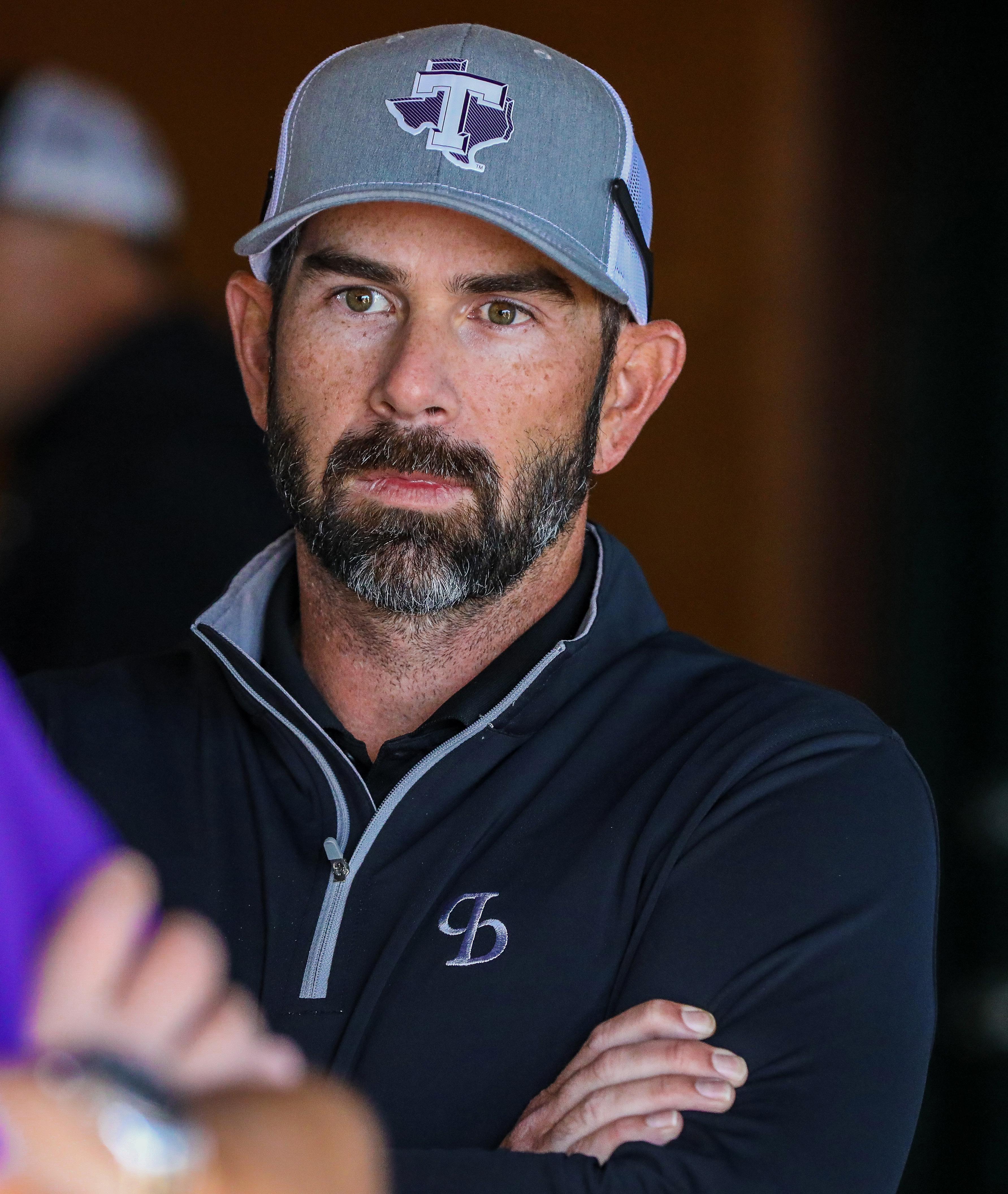
 by Phil Riddle
by Phil Riddle
E.J. Speed knew he was good enough to make the National Football League.
The 2018 Tarleton graduate proved it at every step along the way. “I think I realized it in high school. Then when I got to college, I started to realize I was better than some of the guys who everyone said were really good.
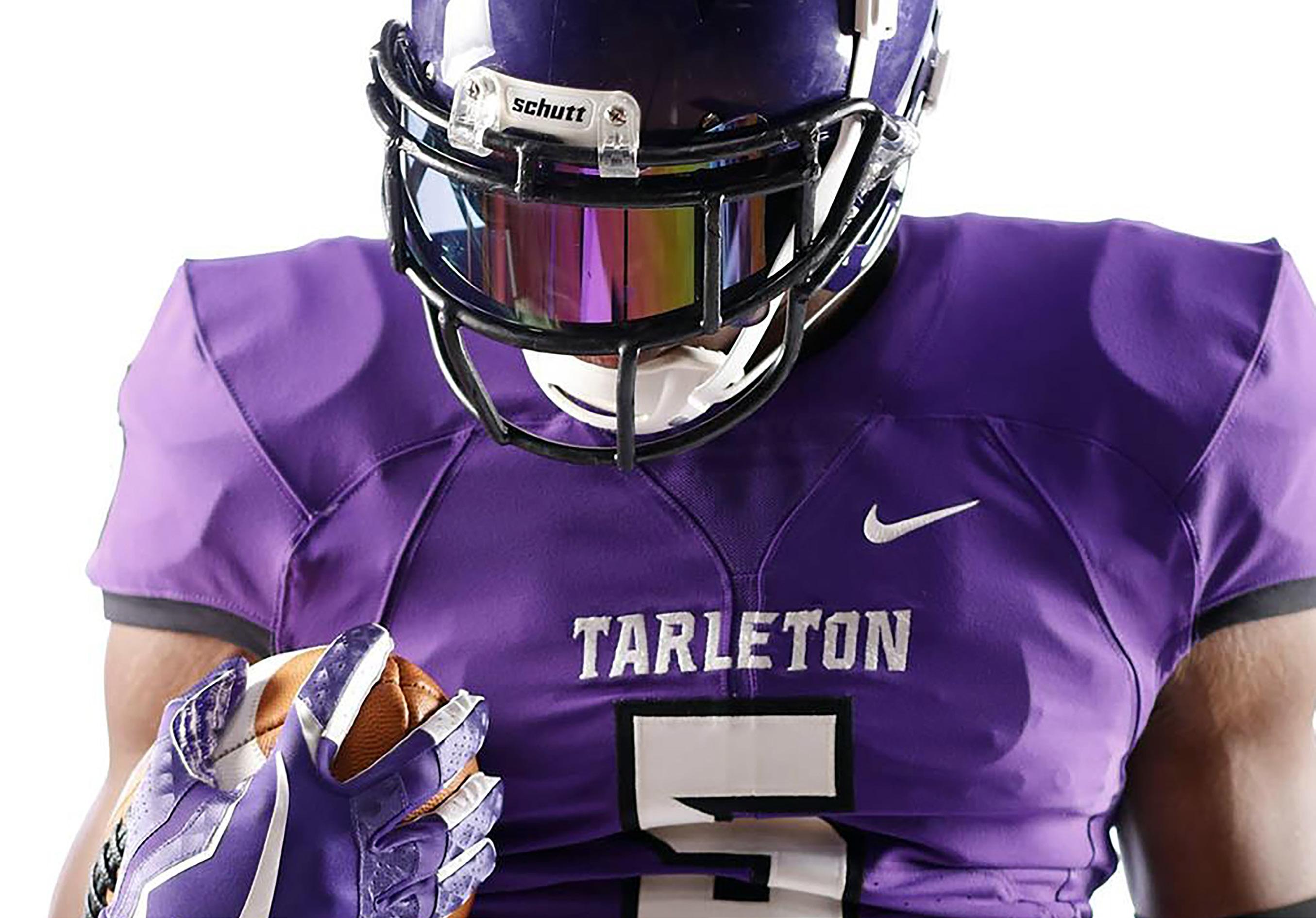
“By the time I was a senior, I knew I was better than the best guys. I
had to be somewhere in the conversation to be a professional athlete.”
As a star quarterback at North Crowley High School, Speed earned all-district honors and was selected a Top 30 prospect by Dave Campbell’s Texas Football. He passed for more than 3,000 yards as a senior and had 30 receptions for another 400 yards and two touchdowns.
That kind of production drew the attention of big-time college football programs. Scholarship offers arrived from Oklahoma State, Colorado, Colorado State.
But those programs didn’t fit his plan the way Tarleton did.
He first played football at the Pee Wee level with his adopted brother, Paul Snead. The pair dreamed of playing college football together and being drafted into the NFL at the same time.
As a senior, however, Snead was diagnosed with cancer and began chemotherapy. Speed decided to stay close to home and hopefully pave the way for the pair to play together at Tarleton when Snead was better.
“Me and my brother had always talked about being stars in the NFL. If you add it all up, we played together for 14 years. Add the time on the street playing pickup games, and it was more than that.”
Sadly, his brother, nine months older, didn’t recover.
“That left a hole,” Speed said, “one that can’t be filled. But the choice I made during that time to come to Tarleton turned out to be really good for me.”
Good for Tarleton, too.
He played five seasons in Stephenville, converting to linebacker following his injury-shortened redshirt freshman year.
“I knew I could do it,” he said of the switch to defense. “I was confident. I just knew I could do it.”
He finished his college career with 231 tackles (36 for a loss), 11.5 sacks and eight forced fumbles. Twice he was named second team All-Lone Star Conference.
His college credentials made him an attractive addition to an NFL roster. In the fifth round of the 2019 draft, the Indianapolis Colts snapped him up.
“I saw it on TV. It was surreal,” he said. “It was a great moment with my family. I had the satisfaction that I said I was going to do something and I did it.”
Colts General Manager Chris Ballard called Speed after the selection.
“He told me the expectations of joining the Colts. He explained what I’d need to do to become a starter in the NFL.”
The new pro must have listened and taken the advice to heart.
He made his NFL debut Sept. 15, 2019, in a 19-17 win over the Tennessee Titans. He finished his rookie season with seven tackles in 12 games played. A little over a year later, also facing the Titans, Speed blocked a punt that was returned for
a touchdown, earning AFC Special Teams Player of the Week designation.
In Week 10 of the 2021 season, he claimed the honor again, returning a blocked punt 12 yards for a touchdown in a 23-17 victory over the Jacksonville Jaguars. Four weeks later he recovered a blocked punt in the end zone for his second touchdown of the season in a 27-17 winning effort against the New England Patriots.
Now a seasoned veteran, Speed fondly remembers game days at Tarleton.

“We didn’t have the new stadium that’s there now. There were students and fans on the field and in the end zone because there weren’t enough seats. The community of Stephenville and the Tarleton family were great about showing up for games. I loved that.”
His status as a professional has positioned him for even higher goals.
“My focus is to come in each season better than I was the year before,” he said. “With that and me chasing the dream of becoming an All-Pro player and a Super Bowl champion, I don’t think I have room within myself to slack. This season I expect more than all of my previous seasons.”
Don’t doubt E.J. Speed. He has been right so far.
American football linebacker, E.J. Speed, Indianapolis Colts

ALAN HAIRE ’93, BS physical education, ’94 MEd physical education, is the new Killeen Chaparral High School campus athletic coordinator and head football coach. He has led Salado athletics since 2016; the Eagles reached the state quarterfinals in 2017 and the Class 4A Division II regional finals in 2020.
VALERIE PAYSON ’00, BS human resources management/ personnel administration, has been appointed director of the CTC Foundation at Central Texas College. She oversees major and planned gift solicitation and management of the CTC Foundation endowment and scholarship program. She also directs activities involving donor development, fundraising, scholarship and grant distribution, capacity building, and identifying, soliciting and securing gifts for the college. A business owner for more than 15 years, she is a past board president of the Greater Fort Hood Area United Way, a member of the AdventHealth Central Texas Foundation board of directors, and a past president of the Killeen Ladies’ Lions Club, the Junior Service League of Killeen and the local, council and state PTA.
TRENT ANDERSON ’02, BS agribusiness, was named western division president of Universal Engineering Sciences, a privately held engineering and consulting company. He brings more than two decades of experience in business, construction, engineering services, mergers and acquisitions, and leadership development. He will lead the regional vice presidents, business unit leaders and branch managers in California, Nevada and Utah, with a focus on effective communication among the division and national leadership teams.
JUDD THRASH ’04, BS exercise and sport studies, ’08 MS education, is the new athletic coordinator and head football coach at Lubbock Monterey High School. He most recently was defensive coordinator at Duncanville High School, helping the Panthers become state finalists in 2019 and 2021. Since his career began in 2005, Thrash has coached in four state championship games and won two 4A state championships and 11 district championships.
DR. LANCE GROPPEL ’05 BS education, ’10, MS education, has been named Tyler ISD deputy superintendent of administration. He will lead the division that houses curriculum and instruction and K-8 school improvement departments and initiatives. He joins the district from the Grapevine-Colleyville ISD, where he was the executive director of instructional leadership. He previously was the principal at Colleyville Heritage High School, principal at Bridge City High School, principal at Bridge City Middle School, and assistant principal at Hillsboro Junior High. His classroom experience began in 2006 and includes special education, health, U.S. history and coaching football and baseball.
CAROLE FERGUSON ’13, BA, has been named Keep Waco Beautiful’s new executive director. She previously worked at Balcones Distilling, at the Startup Waco business incubator and at the Sidekick Creative Agency, a marketing and media relations firm whose clients included Pivovar, the new Czechthemed brewery, restaurant and boutique hotel in downtown Austin.
AMBER STRANGE ’21, BA kinesiology, was named head volleyball coach at Life High School in Waxahachie. She most recently was a graduate assistant at Tarleton while serving on the volleyball coaching staff. She attended Granbury High School, where she was an all-state volleyball player and broke school records for career blocks and kills.
We honor our faculty, staff, students, alumni and supportive friends who left us last year.

